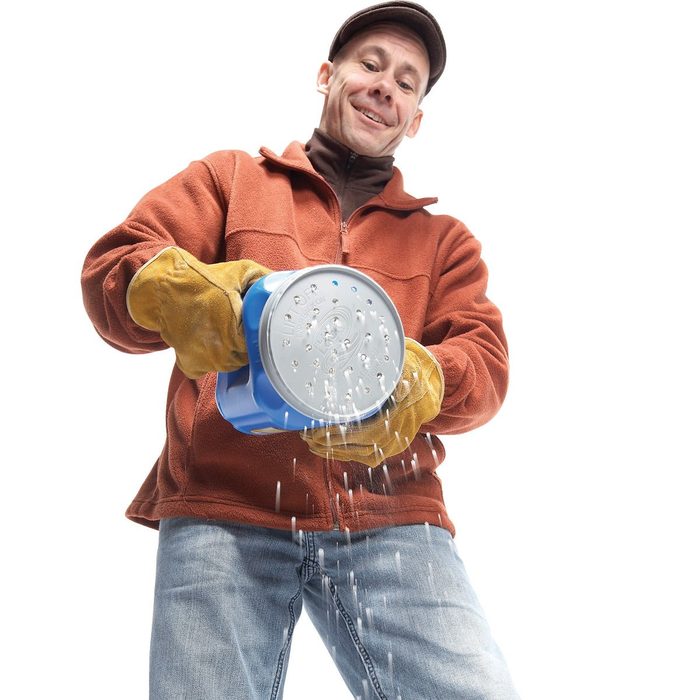
Coffee container
Lugging a heavy bag of de-icer out to the sidewalk is no fun, and it’s tough to spread de-icer evenly with a shovel or cup. You get a clump in one spot and none in another, so you’re wasting both time and deicer. Here’s a great solution. Make a “sidewalk salt shaker” from a big plastic coffee container with a handle. Poke 1/4-in. holes in the lid and fill it with sand, cat litter, deicer, or a mix of whatever you want and shake away! —Reader Tony DeMarse.
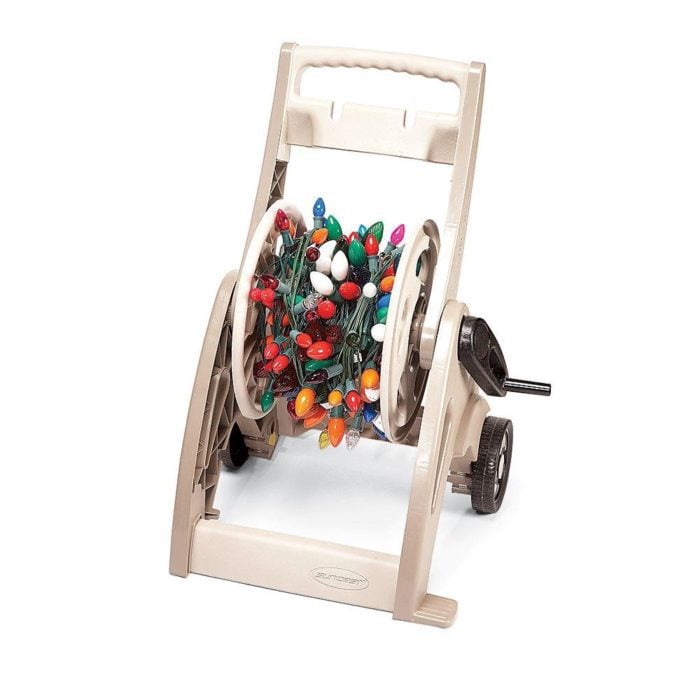
Hose reel
To keep holiday lights from getting tangled and make it easy to string them around the yard next year, roll all the strings of lights onto a portable hose reel with wheels and a handle.
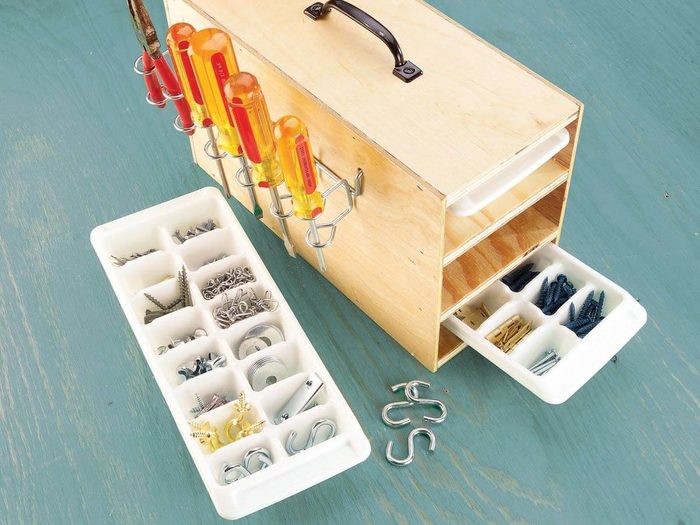
Ice trays
Forget the old coffee can filled with your lifetime collection of screws, washers, and other hardware. Take ten minutes to organize the miscellany in ice cube trays. Nail together a case from scrap plywood and carry it right to the job at hand. Thanks to reader Leo McSherry for this extremely cool tip.
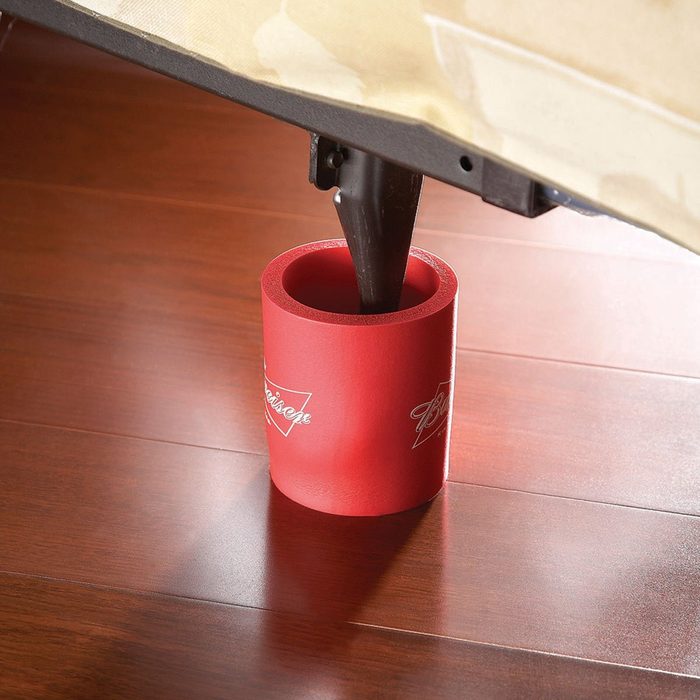
Foam beverage can holders
How many times have you stubbed your toe on your metal bed frame? Ouch! Here’s a creative way to protect your piggies. Cover the bare metal leg and wheel with a foam beverage can holder. It’ll save your toes and prevent carpet dents and hardwood floor scratches to boot! — Reader Vito Accetta
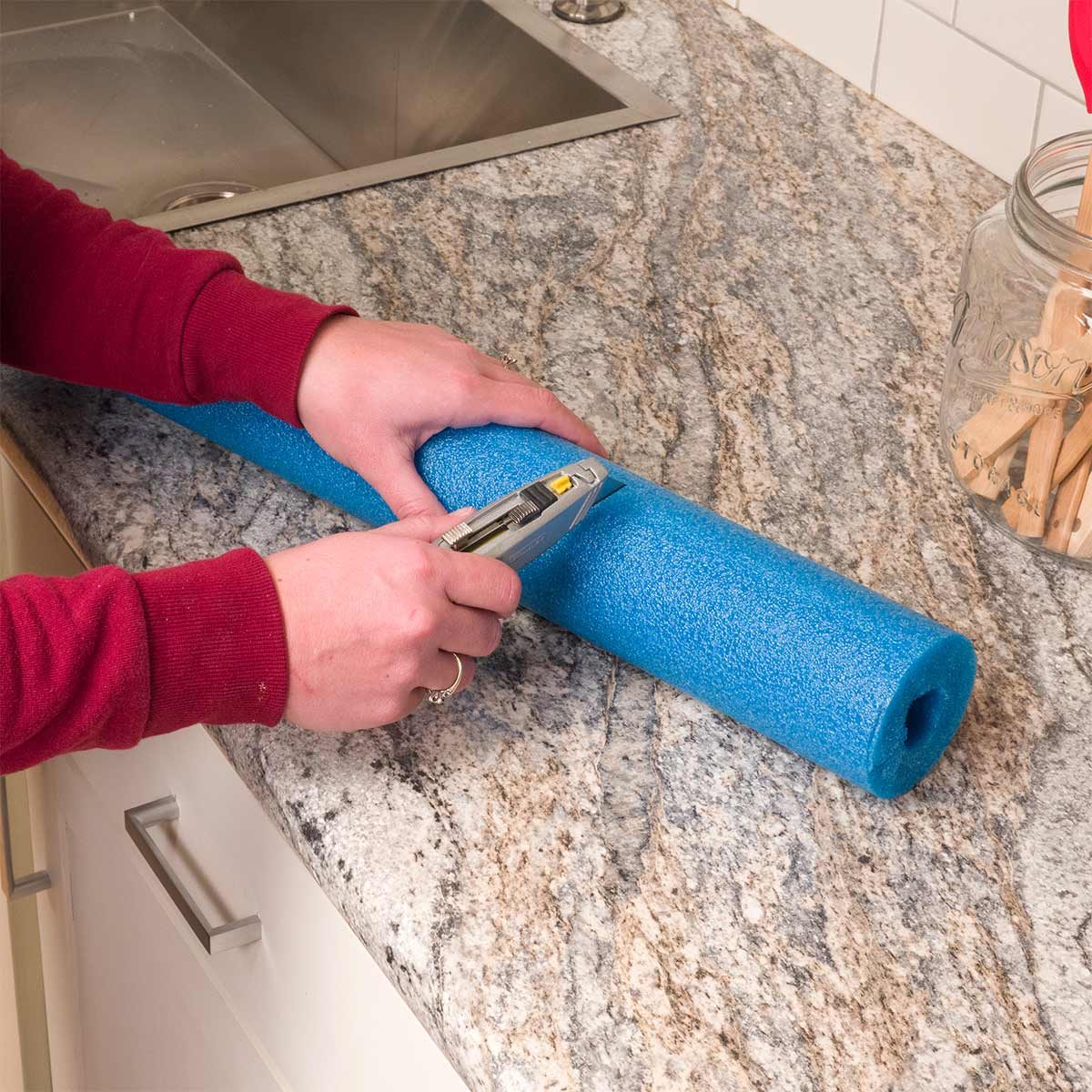
Use a pool noodle inside a drawer
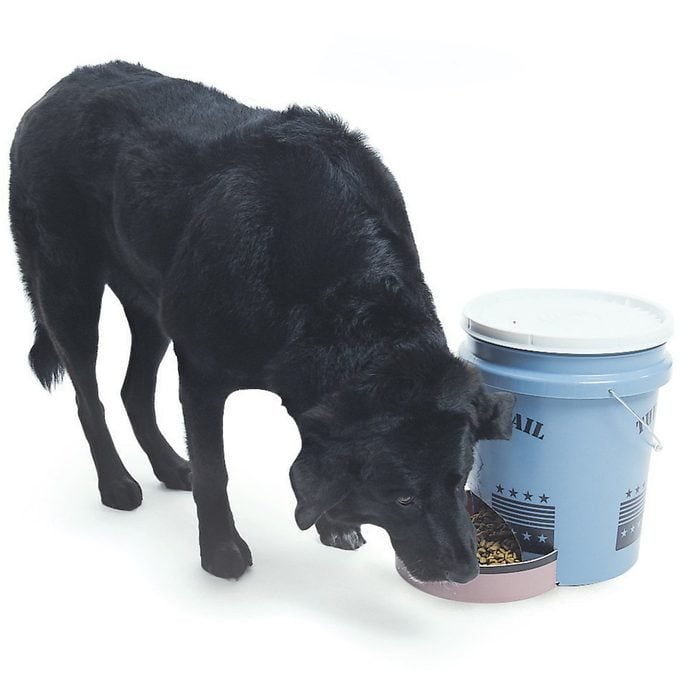
5-Gallon buckets
Five-gallon buckets are super helpful around the house and in the garage. Make a tough, self-filling dog feeder from a couple of five-gallon buckets. With a saber saw, cut the bottom off one bucket to create a serving tray, and cut a food dispensing hole in the food storage bucket (as shown). Cut part of the lip off the bottom of the food storage bucket to flatten it, then use silicone to glue the two pieces together.
NOTE: Don’t build this dog feeder unless your pooch can exercise some self-control. —Reader Justin Moujoodi.
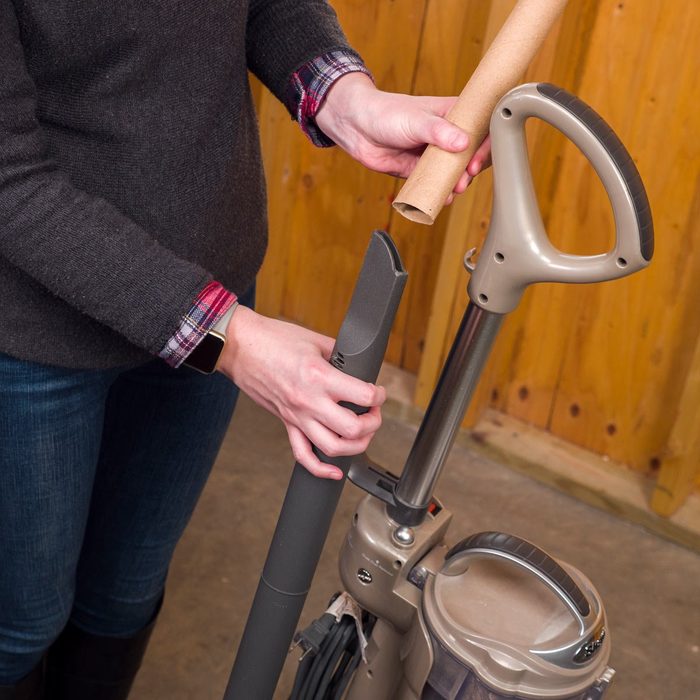
Paper tubes
There are several uses for paper tubes like cord storage or making your vacuum reach more places. To make it easier to clean hard to reach spots use a leftover wrapping paper tube as a vacuum cleaner extension. Now you have three extra feet to clean ceiling fans and cobwebbed corners.
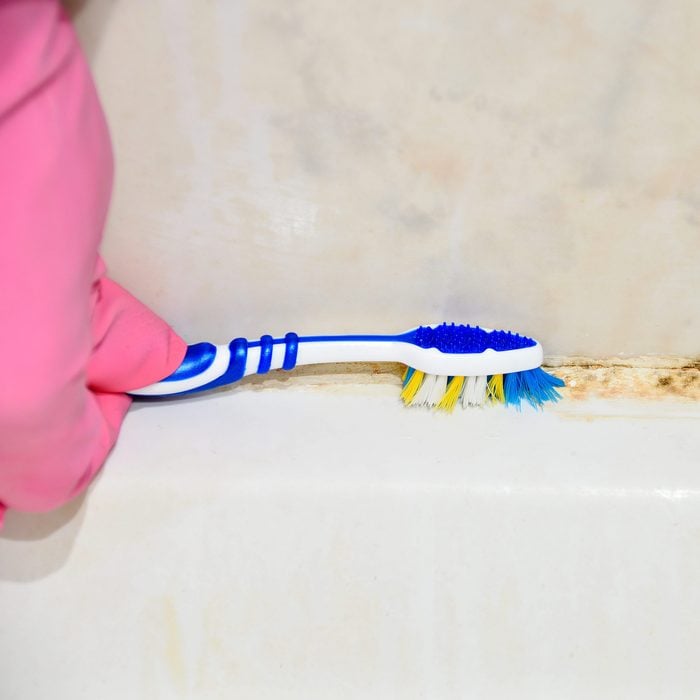
Toothbrushes
Old toothbrushes are great at cleaning tough to reach spots. Now that discount and dollar stores carry cheap electric toothbrushes, you can add a modern twist to routine cleaning. Rapid vibration will quickly scrub out stubborn dirt, while the long handle can get to hard-to-reach places without all the elbow grease.
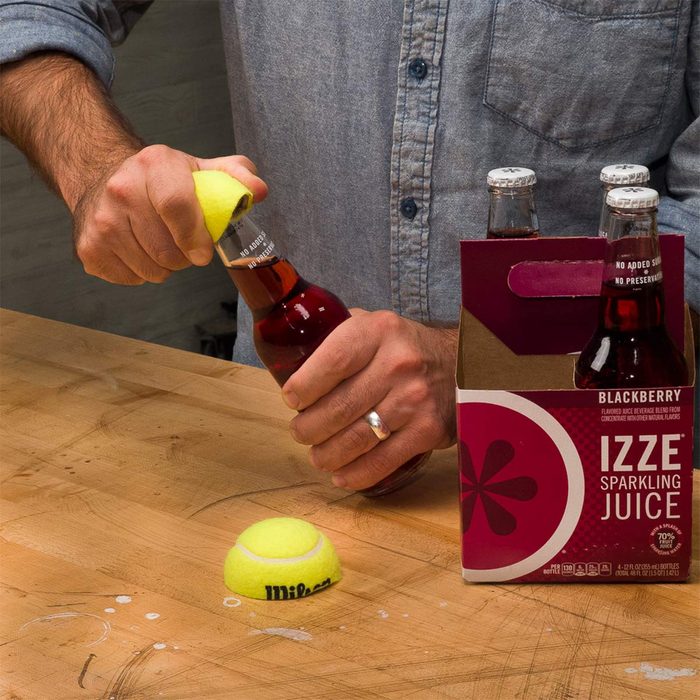
Tennis balls
A tennis ball can help open a bottle or become a mallet in a pinch.
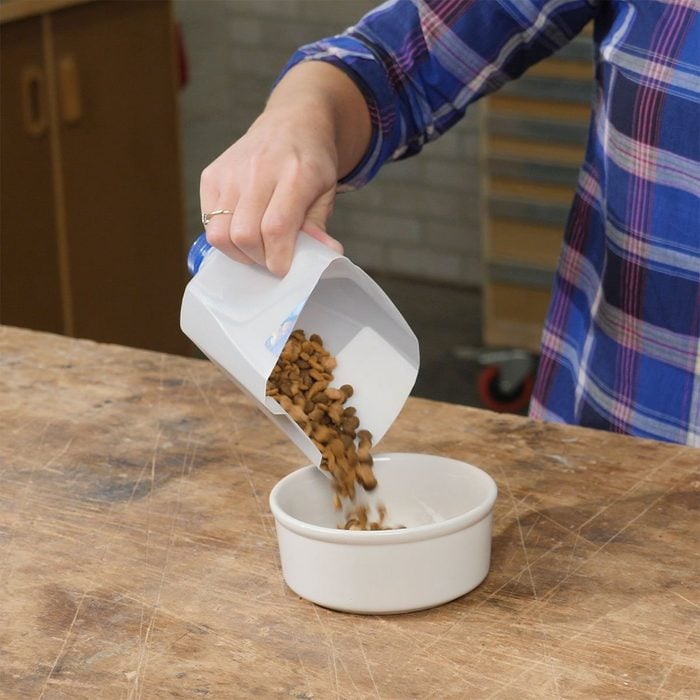
Milk jugs
You don’t need to save all your milk jugs but having a few extra around can be a real blessing.
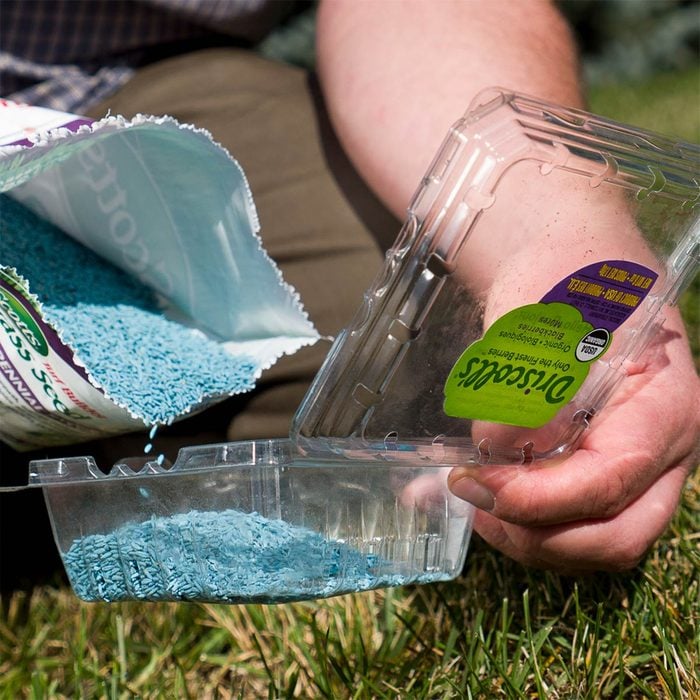
Clamshell containers
Clamshell containers are great for repurposing and for holding cookies. When it’s time to clean out the refrigerator, be sure to save those plastic berry containers. You can toss the mushy raspberries, but wash and dry the container—it’s perfect for spreading grass seed on your lawn!
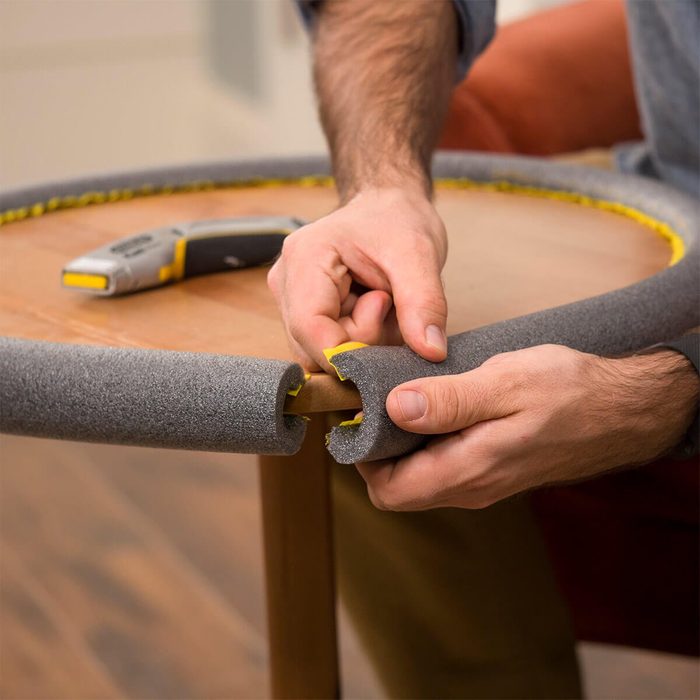
Pipe insulation
Pipe insulation is somewhat similar to a pool noodle and it’s just as handy to have. You can use foam pipe insulation to baby-proof your home. Cut the tube to length and slip it onto edges and corners that could be dangerous to a small child. The pressure of the curved foam will keep it in place for an easy-to-remove baby-proofing solution. Or, use the adhesive strip to hold the insulation in place for a more permanent safety fix.
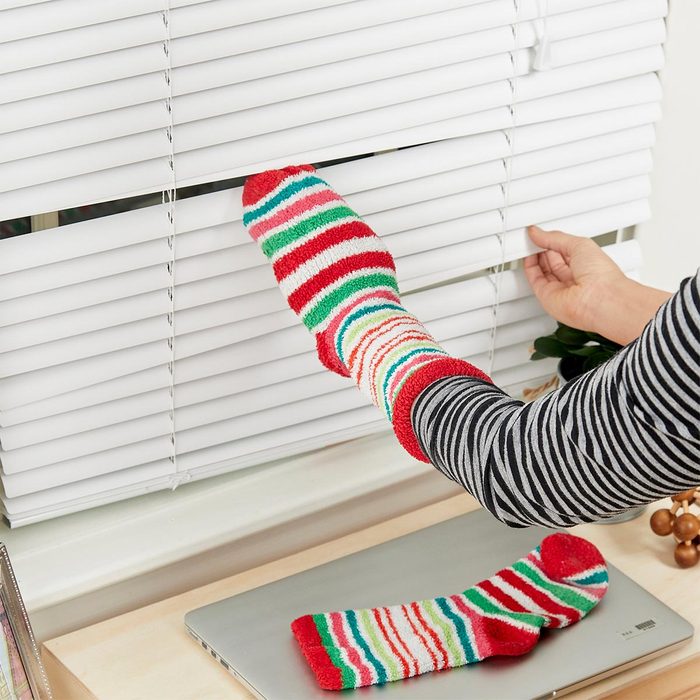
Socks
The next time you need to clean your window blinds, use an old sock on your hand! Your hand makes a perfect tool for reaching all of the nooks and crannies on the blinds, and the sock picks up dust wonderfully.
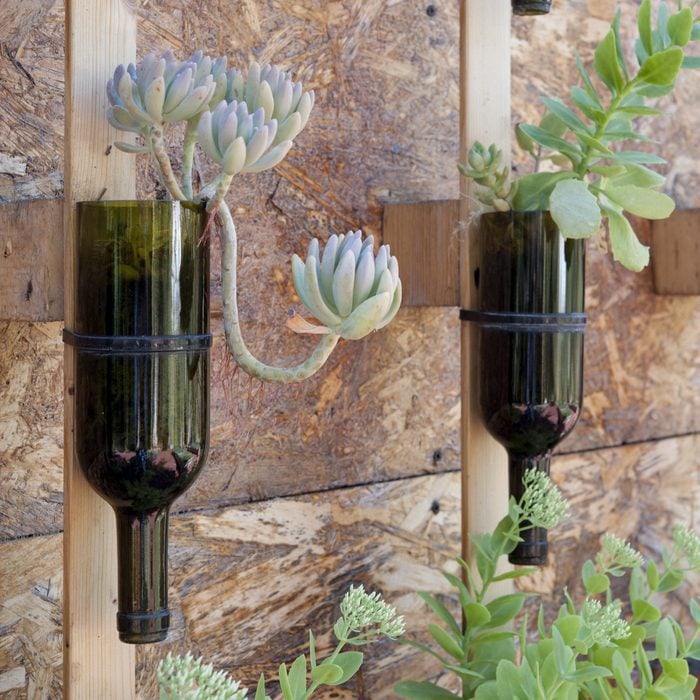
Wine bottle
Wine bottles are getting used by DIYers for all sorts of projects these days. If you’re up for cutting glass, try using empty wine bottles as planters. You’ll need to cut either the side, top, or bottom, depending on the look you’re going for.
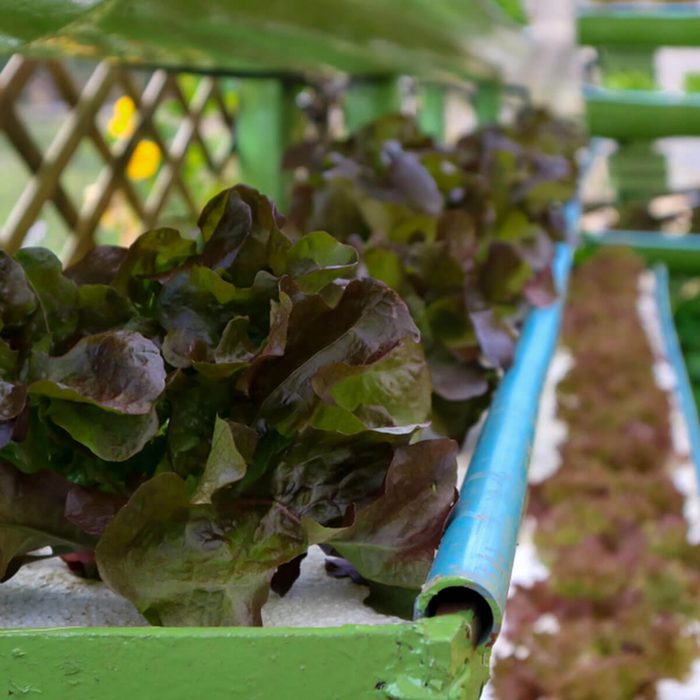
Gutter garden
Gutters can also be used for creative outdoor water features. Or, like here, gutters have been mounted on a wall for a hydroponic garden.
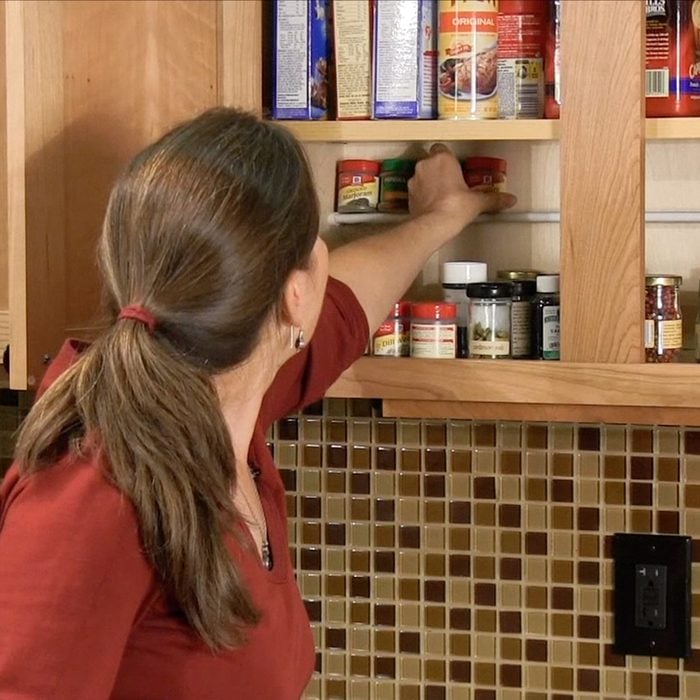
Curtain rods
If you need extra storage space reach for a curtain rod. If you have space in an upper cabinet, try a DIY spice storage rack that uses a spring-tension curtain rod.
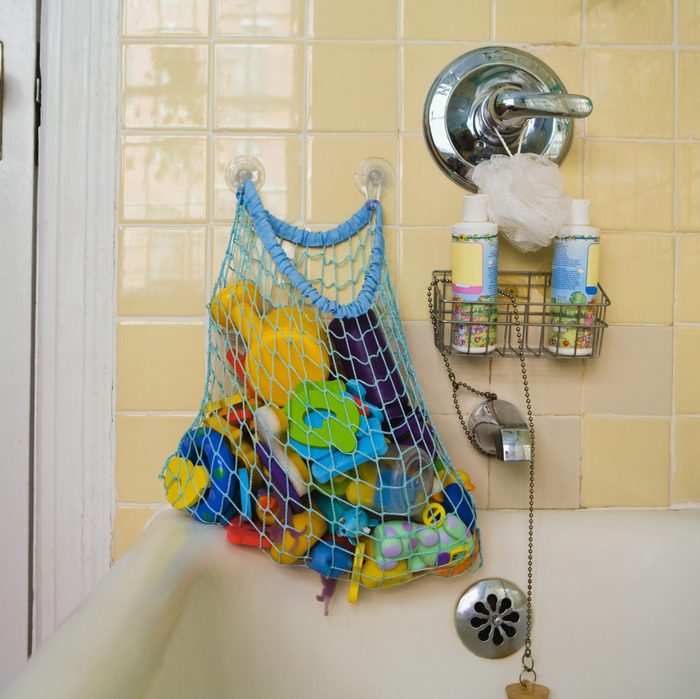
Mesh produce bag
One of your easiest and most eco-friendly options for toy storage is already in your refrigerator. Empty your mesh produce bags and toss in your child’s bath or beach toys. Attach a plastic hook and hang the bag of toys on the shower wall within easy reach. And if you need more room than what you can hold in a five-pound bag, buy a reusable mesh produce bag and still have an eco-friendly bag alternative to traditional toy storage.
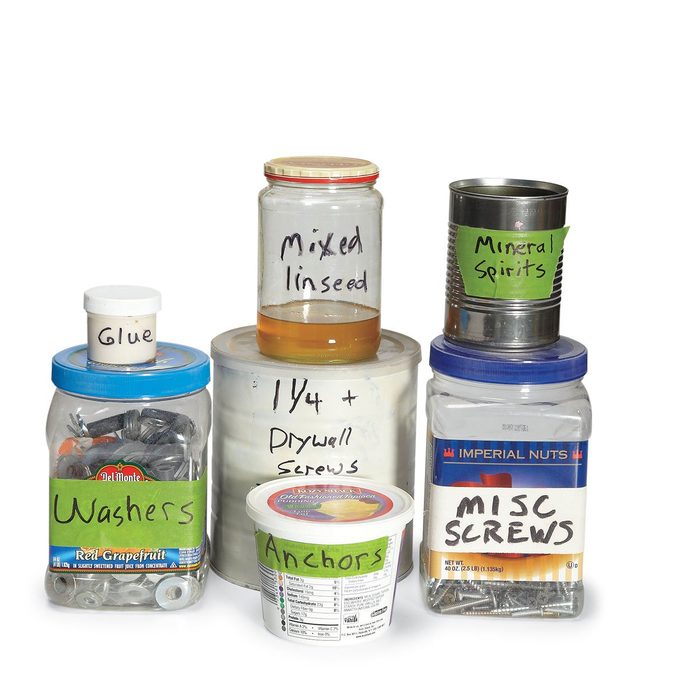
Save your containers
Save all your glass and plastic containers for your shop. Glass jars work well for liquids. Clean brushes in an old tin can. Brush on glue from small containers of all kinds. Sour cream/cottage cheese containers work for just about everything. Clear plastic containers are great for miscellaneous storage because you can see what’s in them. Just label everything with a permanent marker. By the way, here’s how to open a can without a can opener—just in case you find yourself in a pinch.
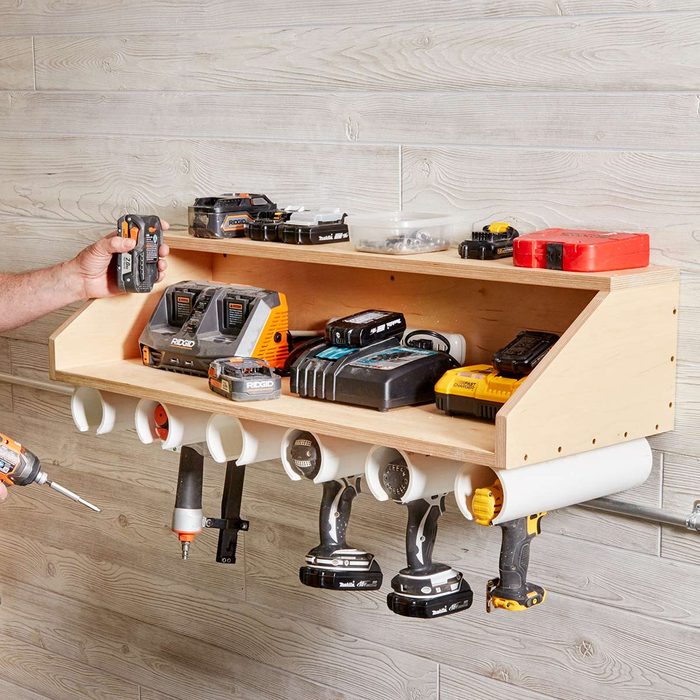
PVC piping
Keep your drill(s) and accessories organized and close at hand to make your DIY projects run smoothly. By investing just two hours, you can build this wall-mounted drill dock to house everything you need. There’s a top shelf for accessories, a wider lower shelf for larger items such as battery packs, and the clever use of 3-inch PVC piping makes hanging holsters for different drill attachments.
The instructions for this drill dock include advice on how to customize the dock to fit your drill and you can even add a power strip to the bottom shelf to keep everything charged and ready to go. In addition to basic tools, you’ll need a circular saw, a jigsaw, and a clamp to complete this project successfully.
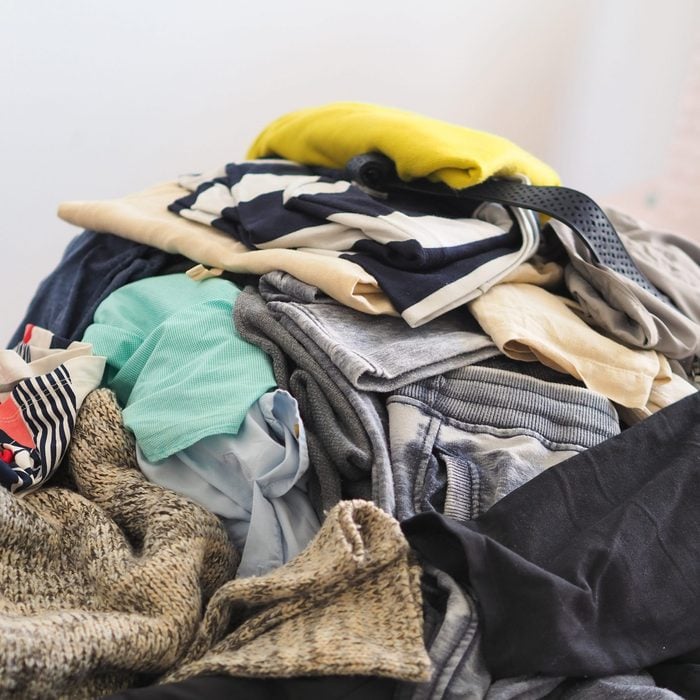
Old clothing
Purchasing cotton rags for painting, cleaning or dusting projects can get expensive. Make your own rags for free using old T-shirts and other unused garments. A few minutes with a pair of scissors or utility knife set up like this is all it takes to convert unwanted clothing into useful rags.
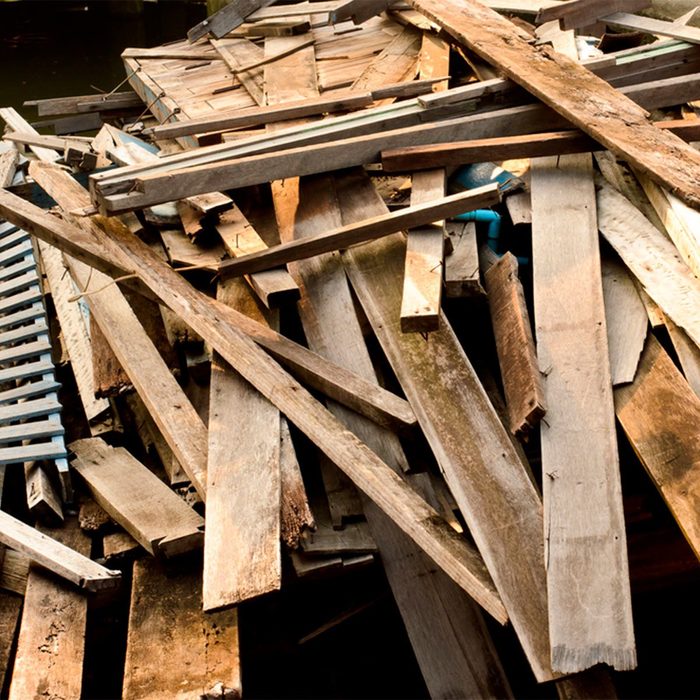
Used or leftover building materials
Salvaging used or leftover building materials is a great way to save a few dollars. Visit a nearby construction site and speak to the project supervisor. Often, they will allow you to dumpster dive for discarded materials. Not only is this good for your wallet, but also the environment by keeping it out of the landfill. In addition, used materials often have a unique patina, which could add extra appeal to your project.
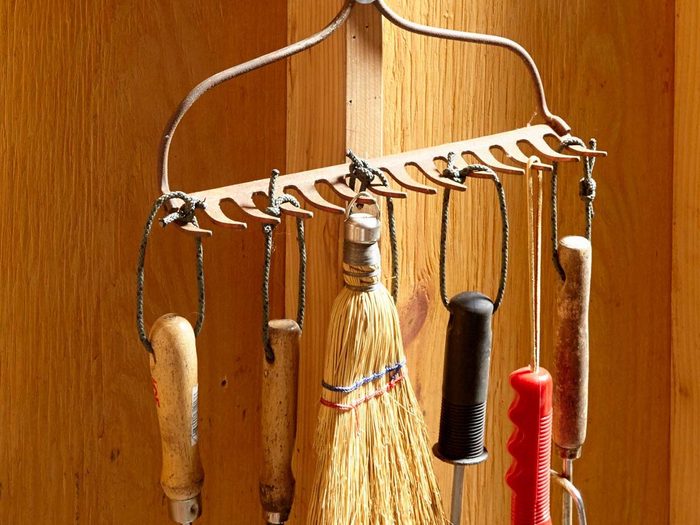
Old rake
Don’t throw away that old rake. When the handle broke on our old rake, I decided to repurpose it for use as a rack to store my garden hand tools. It fits the gardening theme and keeps what I need in plain sight! —Reader Judy G. Todd.
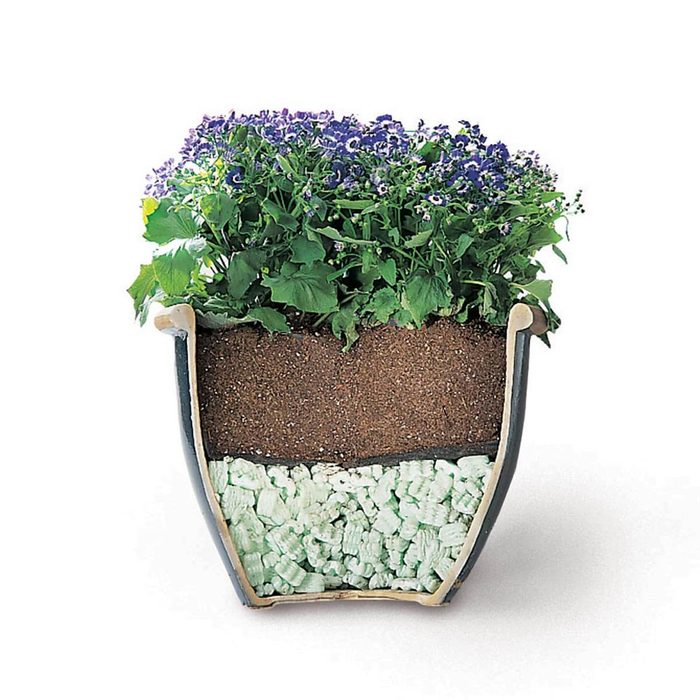
Packing peanuts
Packing peanuts aren’t going to go into your curbside pickup container but places like UPS and other shipping retailers will accept packing peanuts for recycling.
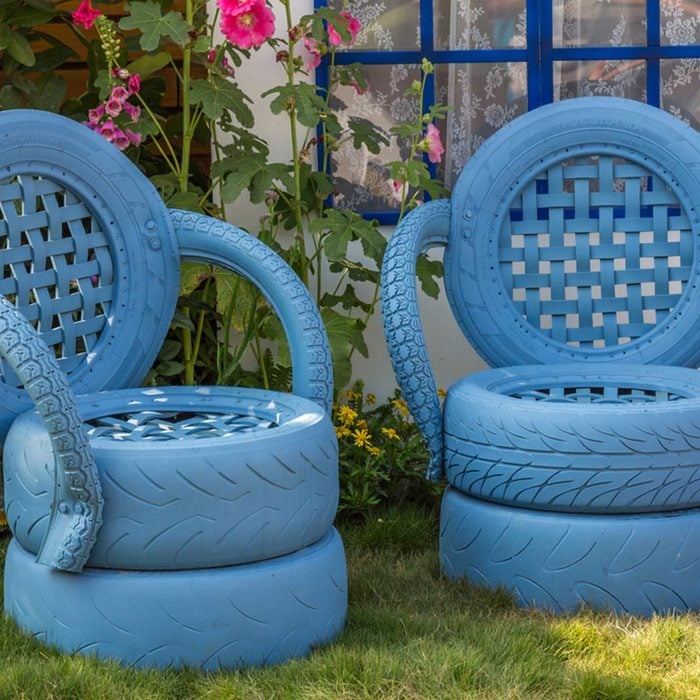
Tires
Make creative garden chairs by recycling your old tires, because what goes better than horticulture and recycled materials?

Use an old eyeglass case for hardware storage
My wife has a drawer full of old eyeglass cases that she doesn’t use anymore, so I repurposed them to store small things like drill bits and screws. I stick a case in my shirt pocket when I’m working and toss it into a toolbox when I’m done. It’s much easier than digging around for small stuff in the bottom of my tool apron. —Reader Norm Smith.
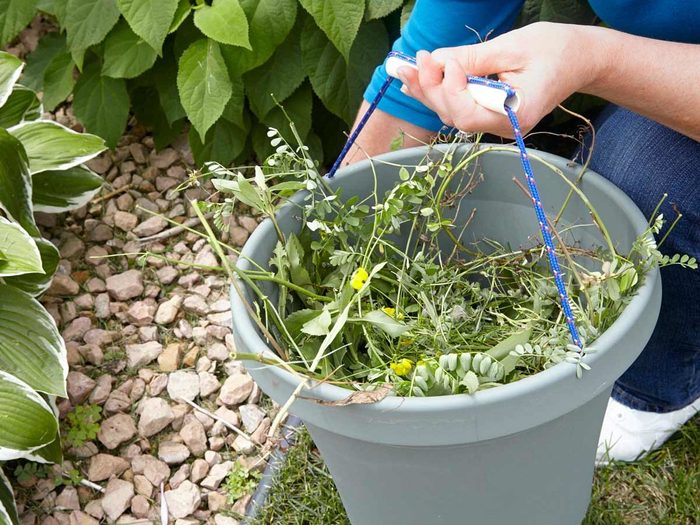
Gardening tool hack
Don’t throw away the plastic pots from potted plants. With a rope handle attached, they make great weed buckets to carry with you as you tend the flower beds or vegetable garden. —Reader Glen Weller.
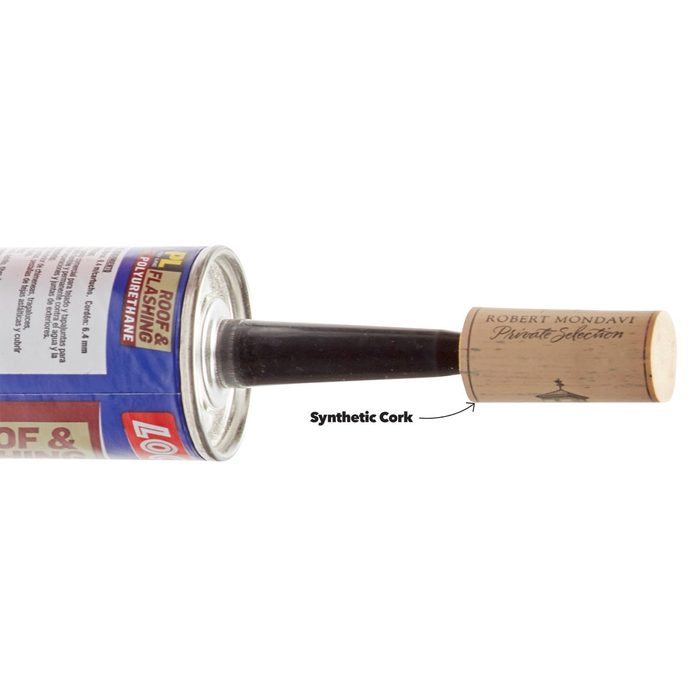
Wine cork caulk saver
Keeping around a few extra wine corks is a good idea in case you accidentally throw one away. But they also work for other purposes. Synthetic wine corks are great for sealing partially used tubes of caulk. Drill a 5/16-inch hole into the cork about 1 in. deep. The cork fits perfectly and makes an airtight seal.
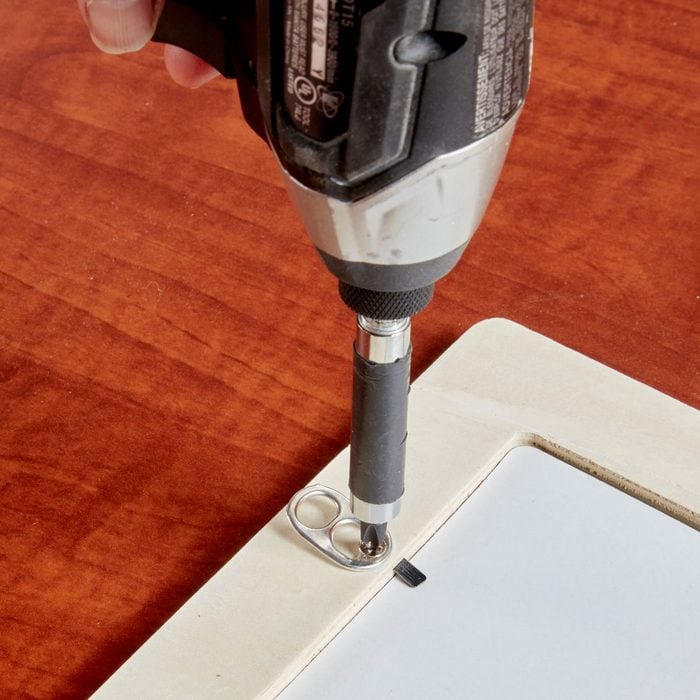
Pop tops
If you’re hanging pictures and run out of those sawtooth hangers, just grab the nearest pop can. Bend the pull tab back and forth until it breaks off. Then screw it to your picture frame. Bend the free end out slightly and hang the picture. —Reader Carrie Tegeler.

Old sneaker
Make sandpaper nearly new again with a lowly old sneaker. Start up your power sander and dust collection system (remember to wear hearing and eye protection). Then slowly press the rubber sole of an old sneaker along the sandpaper—you’ll see a difference instantly!
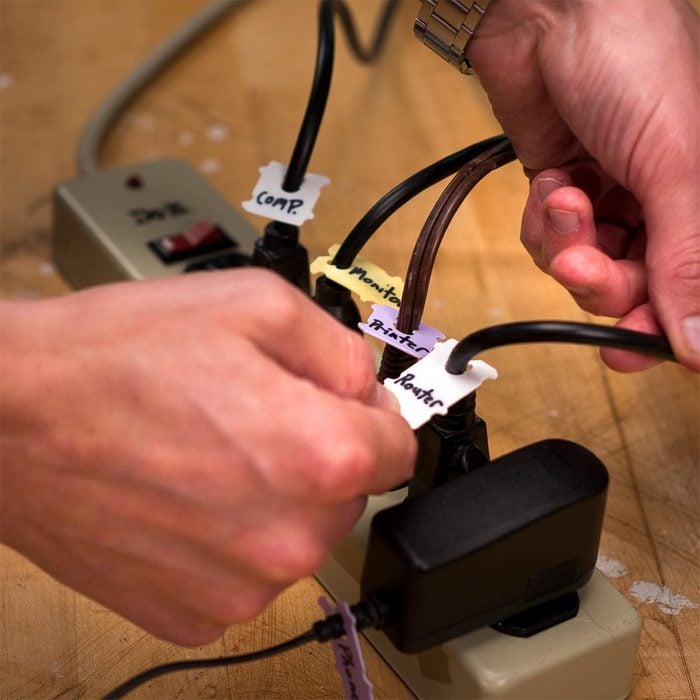
Bread tabs
Not sure which cord goes with which electronic device plugged into your power strip? Save yourself the hassle of following the cord from the plugin to the device for each item you need to move by labeling them. Plastic bread tabs are perfect for labeling cords that are plugged into a power strip because they’re sturdy, have enough room to write on and can easily clip around the plugin end of a cord. Plus, they often come in different colors. You’ll be able to easily identify and move your electrical devices. Here’s the secret meaning behind the colors on your bread tabs, by the way.
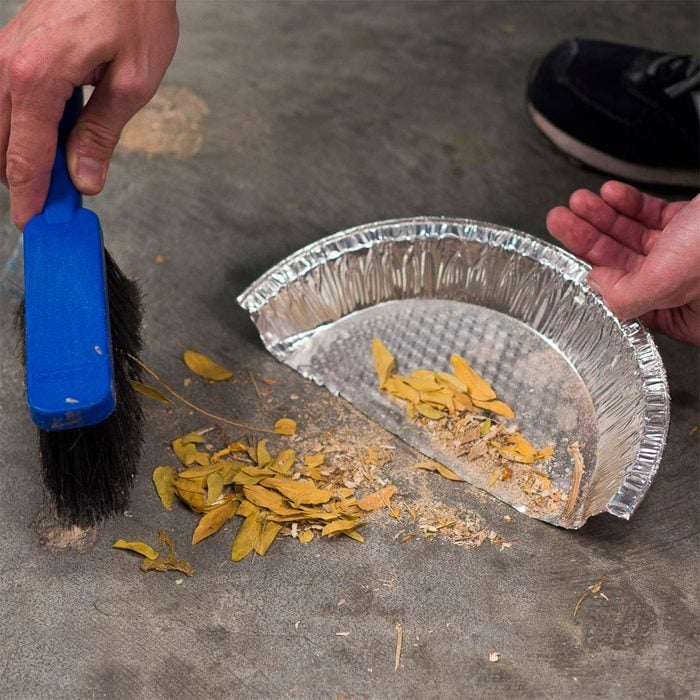
Pie plate
Create a quick disposable dustpan out of an aluminum pie plate. Use tin snips or heavy-duty scissors to cut the pie plate in half. Sweep up the mess and toss it in the trash!
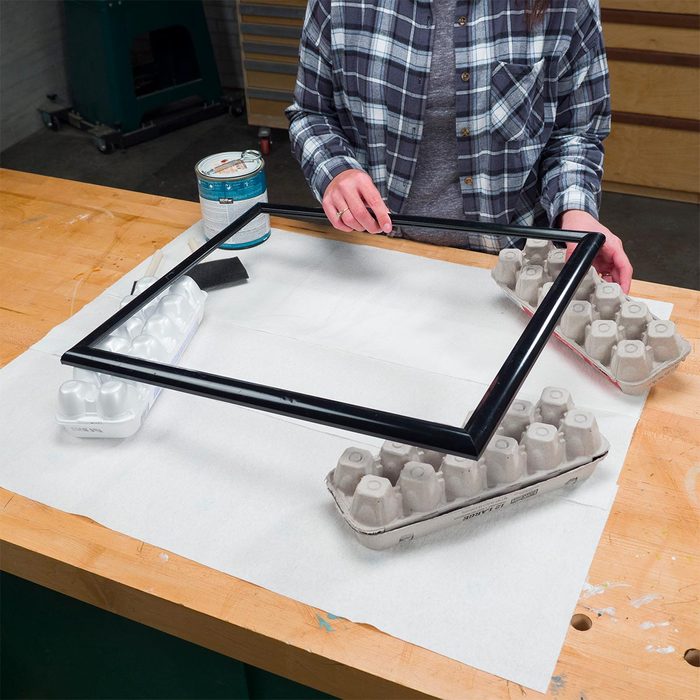
Egg cartons
Keep a few empty egg cartons with the rest of your painting supplies. They’re great for lifting a small project off of a work surface, making it easier to paint nooks and crannies and along the base of the project.
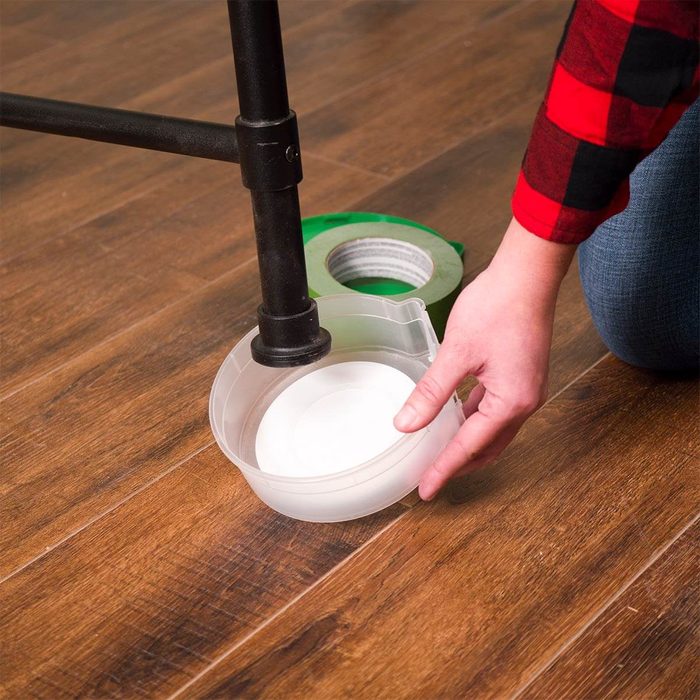
Tape containers
Don’t have any furniture glides on hand when you need to move a piece of heavy furniture by yourself? Dig into your painting supplies and use the base of a FrogTape container under each leg on the furniture piece. It’ll then slide smoothly across the floor.
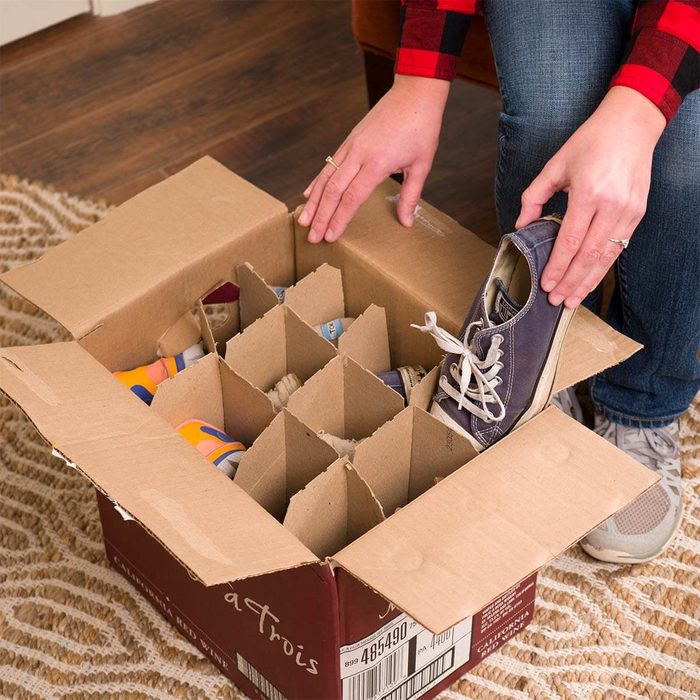
Wine box shoe storage
Find a free shoe storage container at almost any store that sells wine. Originally designed to protect glass bottles, a wine box is perfect for organizing shoes as well because it comes with cardboard dividers already in place!
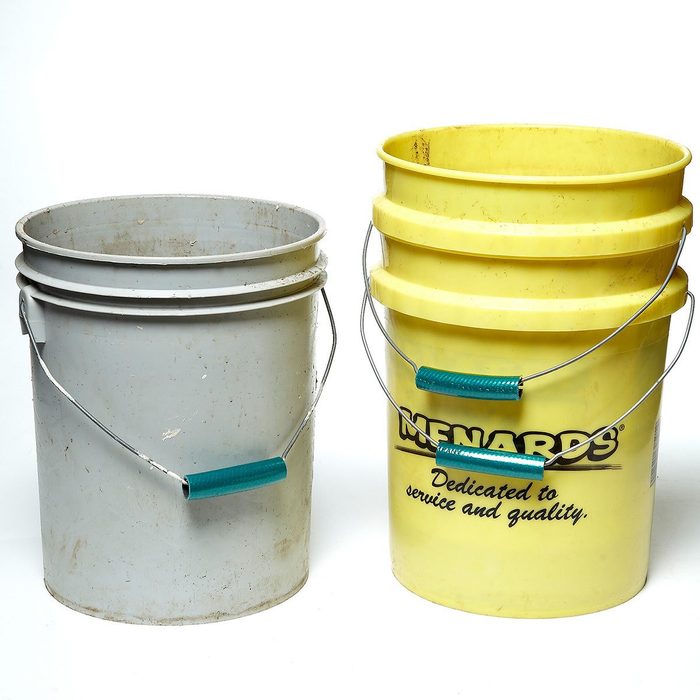
Garden hose
If you have old buckets with broken plastic handles, retrofit the buckets with new handles made from an old garden hose. Cut short lengths of hose, slit each one with a utility knife and slide them over the handles. If you can remove one side of the wire handle, you can just slide the hose grip on without slitting it. The handles work great and keep those buckets on the job!
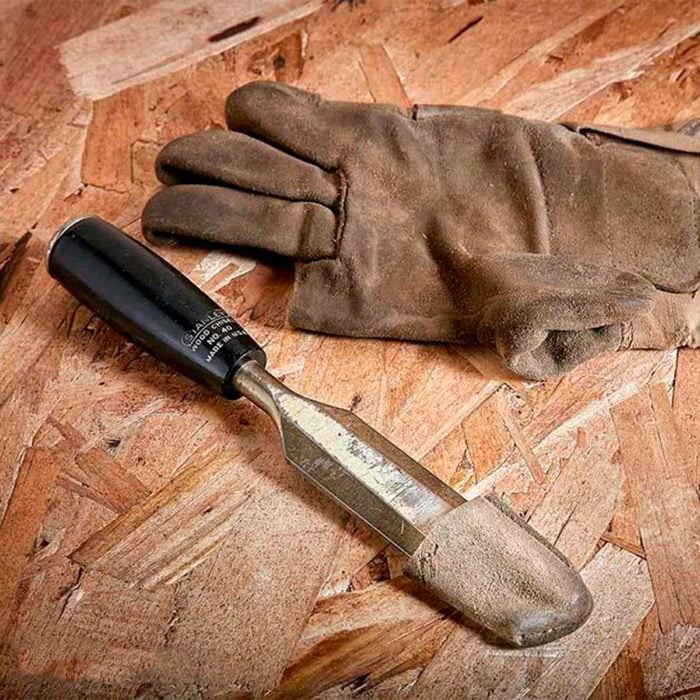
Old gloves
Don’t throw out your old work gloves. Cut the fingers off and you’ll find lots of uses for them. Use them to protect the tips of chisels when you need to carry them. They’re also good for softening the grip of pliers and many other applications.
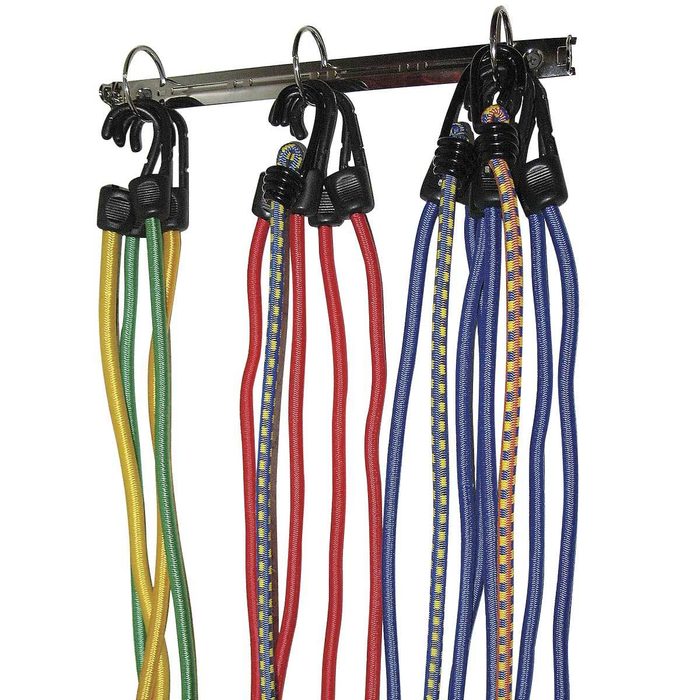
Three-ring binder spine
To store elastic cords safely and neatly, pull out the spine of an old three-ring binder. Punch out the rivets and screw the spine to the garage wall. The rings are the perfect spot to hang cords without dangerous tension. —Reader Tim Groff.
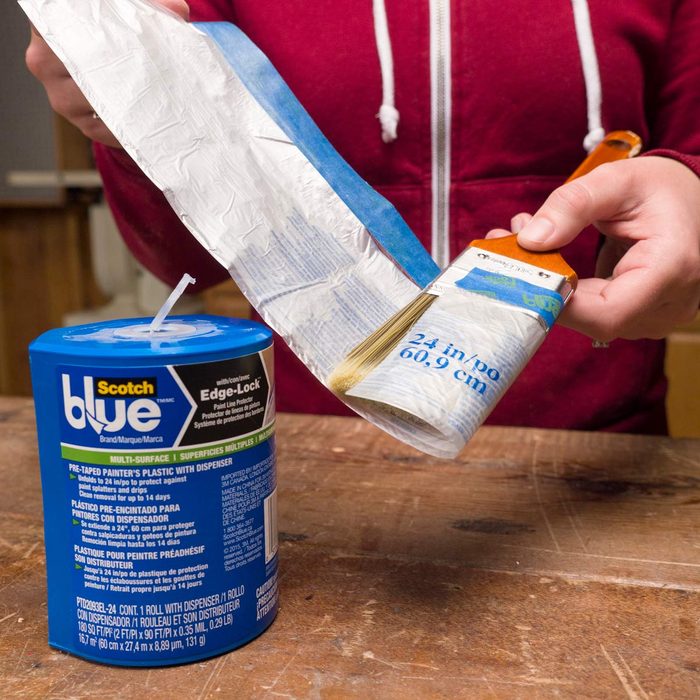
Painter’s plastic
After thoroughly washing and air-drying my brushes, I wrap them with the same painter’s plastic that I use to mask off trim and protect the floors. The tape on the edge sticks to the metal ferrule, and the plastic is the perfect length to cover the bristles and help maintain their shape. —Reader Joe Martin.

Tarps
I needed to pour a concrete pad for a brick mailbox I was building. My neighbor, a retired mason, offered to help, and his first instruction was to skip the concrete mixer rental. He had an easier way, using two people, a 6 x 6-ft. heavy-duty tarp with rope handles at each corner, and a water bucket. Here’s how it works. Pour a bag of concrete mix in the center of the tarp, make a crater in the center and then add the recommended amount of water. Each person grabs two tarp corners like they’re going to fold the tarp. Lift one corner at a time going in one direction, like you’re doing “the wave” at a football game, and continue for a minute or two until the bag is mixed. Pour the concrete right from the tarp into the form and start a new bag. My project, requiring eight bags of concrete mix, was mixed and poured in less than an hour, including washing the tools and tarp. —Reader Travis Dunford.
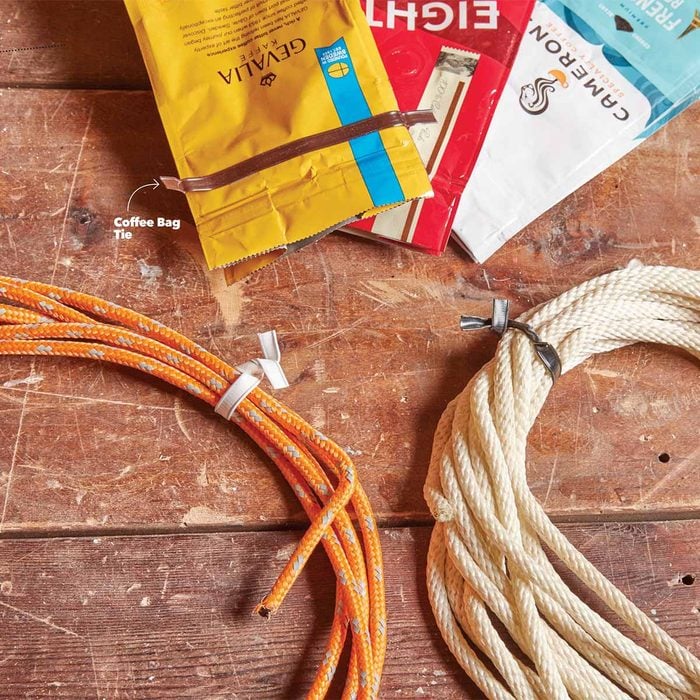
Coffee bag ties
Small bags of fancy coffee have heavy-duty ties to keep them airtight. The ties are handy for securing small coils of electrical cable and rope. They’re usually fastened to the bag with just a dab of glue, making them pretty easy to pull off. —Reader Joe Gemmill.
Speaking of coffee bags, here is your answer if you’ve ever wondered why coffee bags have holes in them.
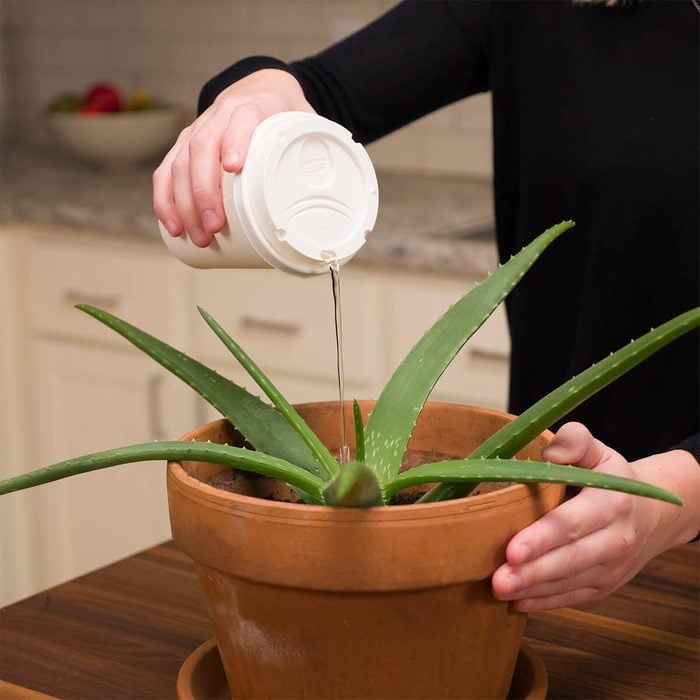
To-go coffee cup
Use a clean to-go coffee cup with a lid to water plants. The hole in the lid is small, so water pours slowly. It’s especially useful for plants such as aloe vera and cacti, which don’t require much water and are at risk of overwatering.
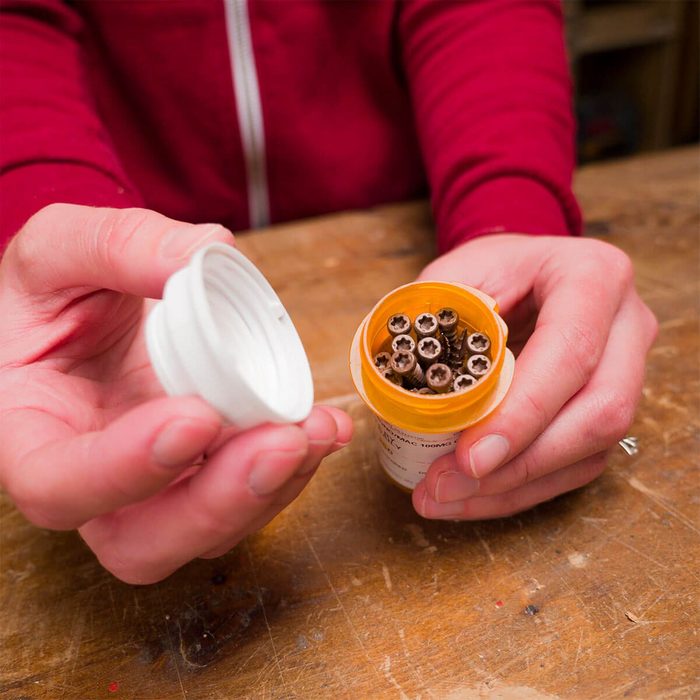
Rx bottle for storing fasteners
Repurpose your empty medicine bottles to store fasteners such as nails, screws, washers, etc. Remove the original label, so you can clearly see the contents inside.
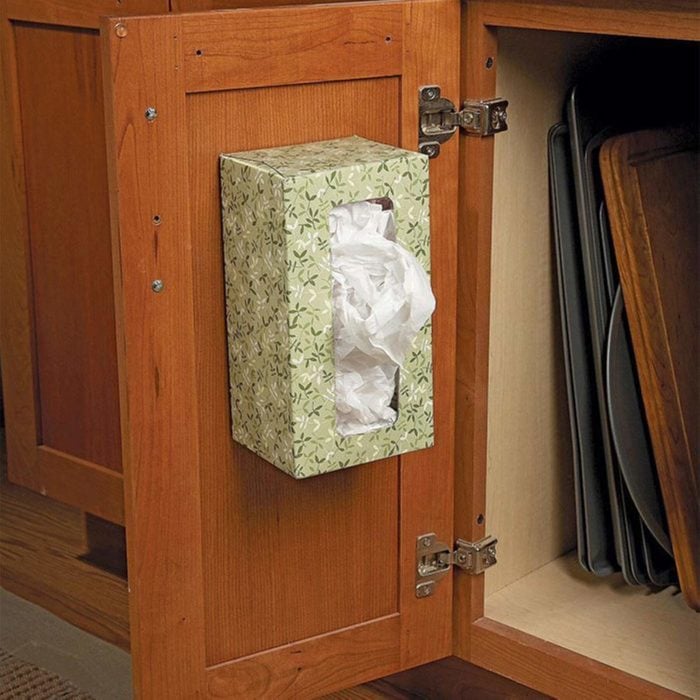
Tissue box
An empty rectangular tissue box makes a convenient holder for small garbage bags, plastic grocery bags, and small rags. Simply thumbtack it to the inside of a cabinet door. It’s one of our favorite kitchen storage ideas.
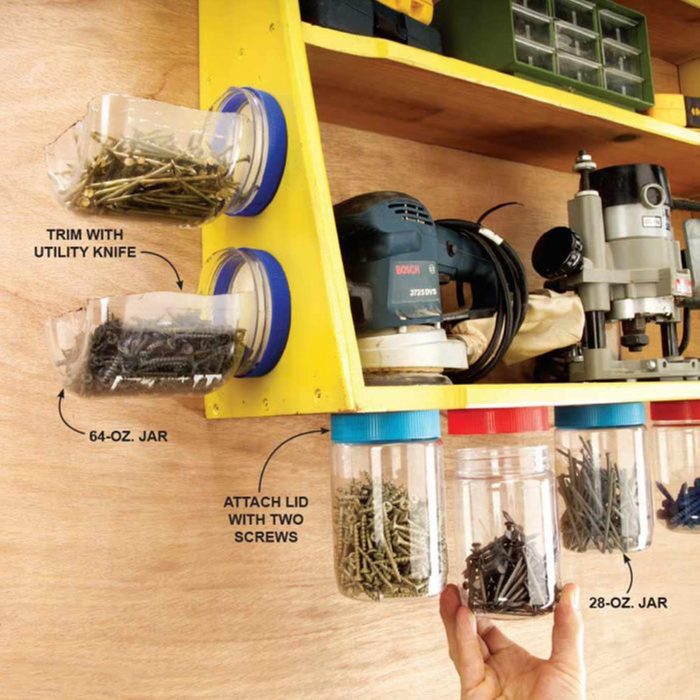
Peanut butter jars
Plastic peanut butter jars work better for storage than glass baby food jars because they hold a lot more hardware and won’t break into shards if you drop one. Attach the lids of 28-oz. jars under a shelf with two screws (so the lid can’t spin when you loosen the jar) and screw on the loaded jar. For quick access, cut away half of a 64-oz. peanut butter jar with a sharp utility knife, leaving the neck intact, then attach the lid and jar to the side of a cabinet. If you load it with lemon drops, we won’t tell.
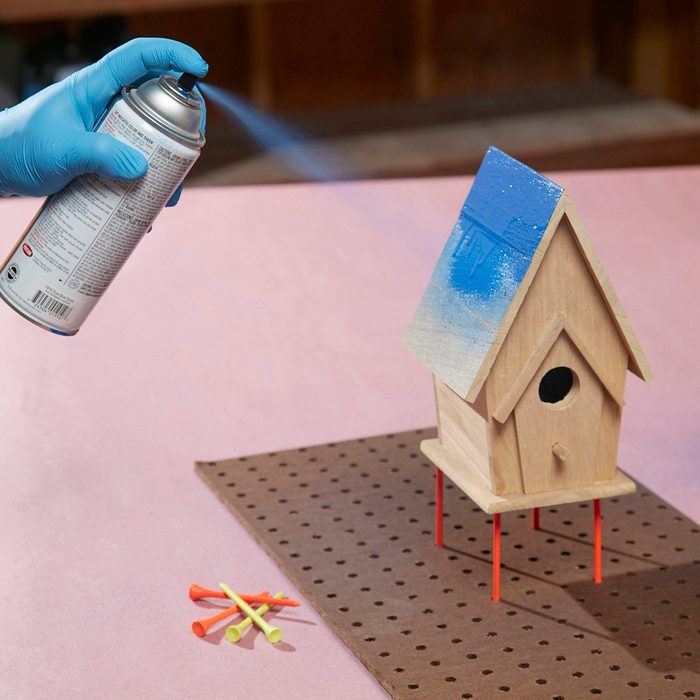
Golf tees
When you’re painting or varnishing small projects, it’s best to elevate them for good coverage and to keep your project from sticking to the worktable. Use an old piece of pegboard and some golf tees. The pegboard keeps the tees in place, and then you can arrange them as necessary for different size projects. —Reader Terry Meincke.
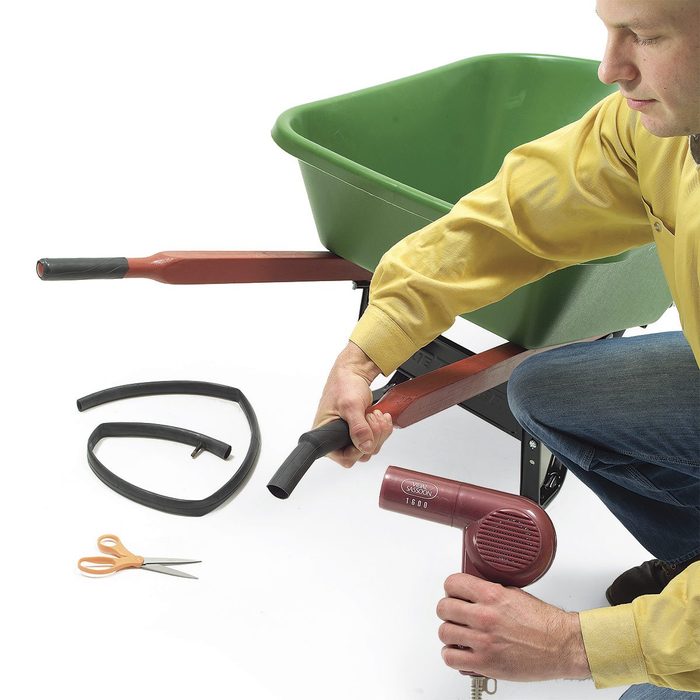
Bike inner tubes
Make lifting heavy loads with your wheelbarrow a little more pleasant by adding these cushioned hand grips. Reuse an old rubber bike tube by cutting pieces to fit over the wheelbarrow handles. If needed, use a hairdryer to warm up the rubber and make it easier to stretch. The bike tube provides the perfect amount of padding and traction.
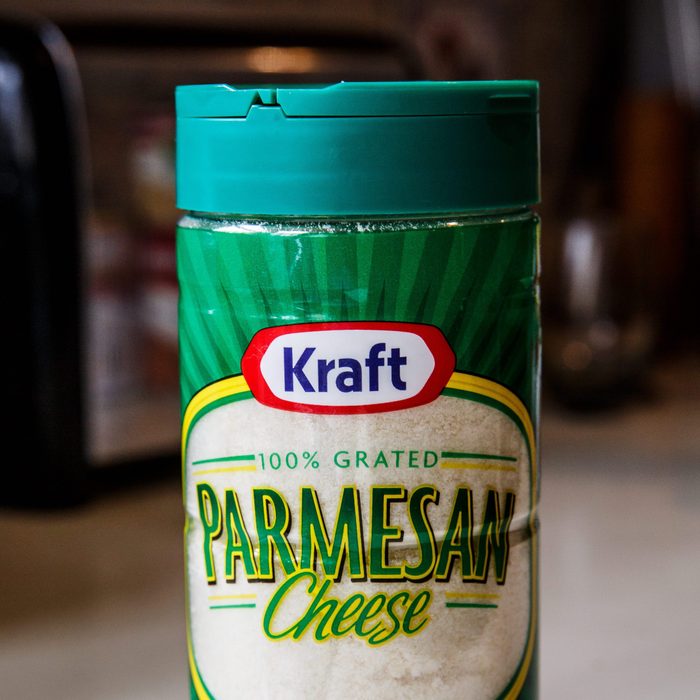
Grated cheese container
Reuse your grated cheese container to shake grass seed on bare spots in your lawn. The holes in the container are the perfect size for dispensing just the right amount without overdoing it.
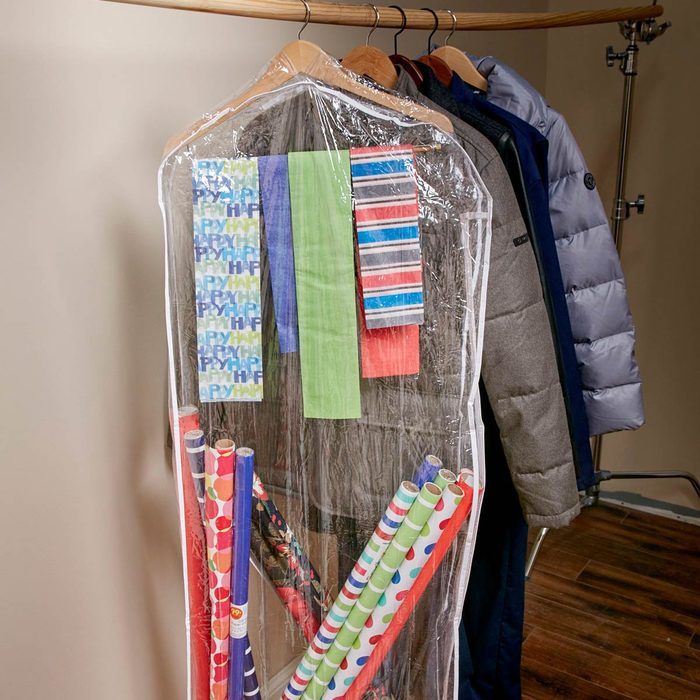
Garment bag
I used to keep rolls of wrapping paper under a bed or in the corner of a closet, making them hard to get at and covering them with dust. And then I’d go hunting for scissors and tape. To make wrapping presents easier, I now use a clear garment bag as a portable gift wrap organizer. It’s great for storing all my ribbons, bows, tape and scissors—all clearly visible and grouped together. I just hang it in the closet until I need it, and I can carry the whole shebang to the dining room table whenever I have a big wrapping project. —Reader Sue Rosenkranz.
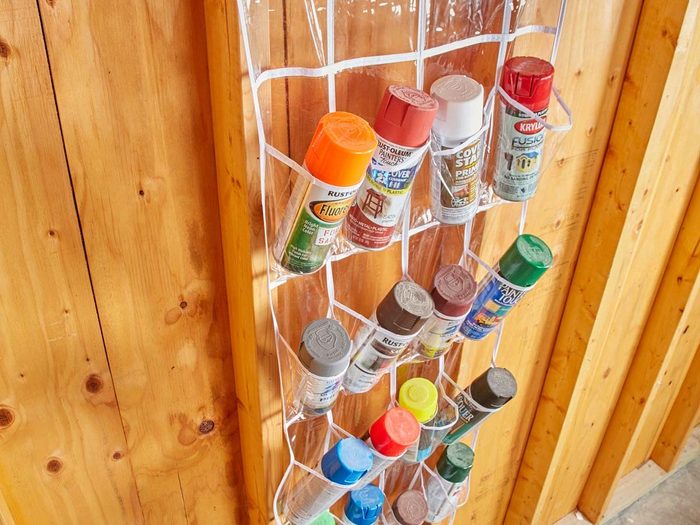
Spray paint organizer
My wife was just about to throw away a shoe caddy when I had this idea. I screwed the shoe caddy to one of the garage walls, and now I store all my spray-paint cans in there. It lets me find the color I want, and the cans aren’t hogging valuable shelf space. —Reader James Stefan.
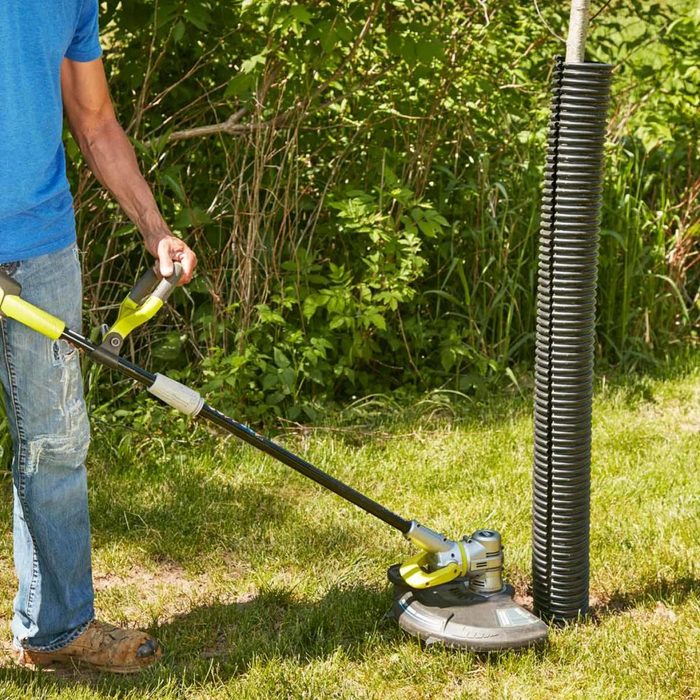
Flexible drainage pipe
We have a lot of deer where I live, and they do a lot of damage by stripping the bark off newly planted trees. And in the fall, the bucks rub their antlers on the bark to scrub off the velvet. To prevent such damage, I cut lengths of 4-in. flexible drainage pipe, slit them and wrapped them around the base of the trees. I used the kind with holes in it so air can circulate and keep the trunk from rotting. The pipe also protects the base of the tree whenever I run my string trimmer and prevents winter burn from the sun reflecting off the snow. —Reader Blake Bethards.
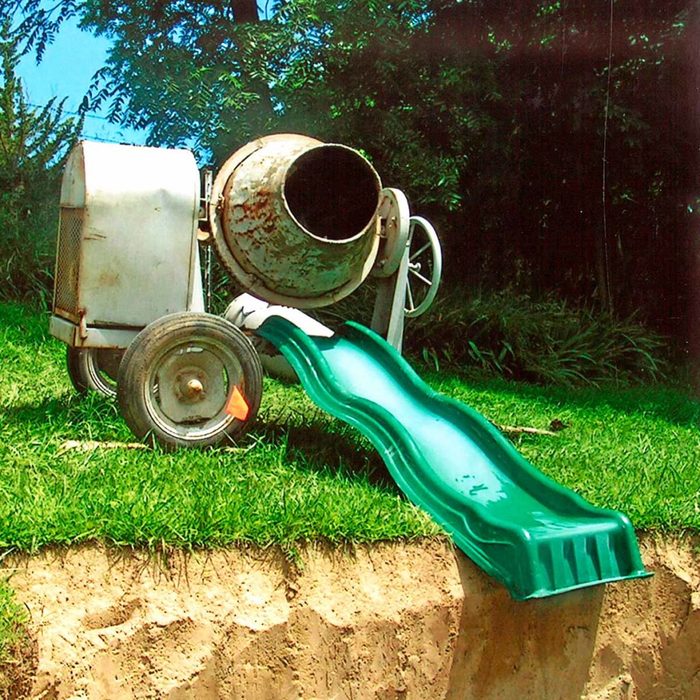
Slide
My husband and I needed to pour a new concrete pad. We rented a cement mixer to make the job easier, but we didn’t like the idea of schlepping concrete from the mixer to the hole, one wheelbarrow at a time. Instead, we found a plastic slide from an old swing set and used it as a chute. This allowed us to pour the concrete directly into the form. —Reader Judy Hoppe.
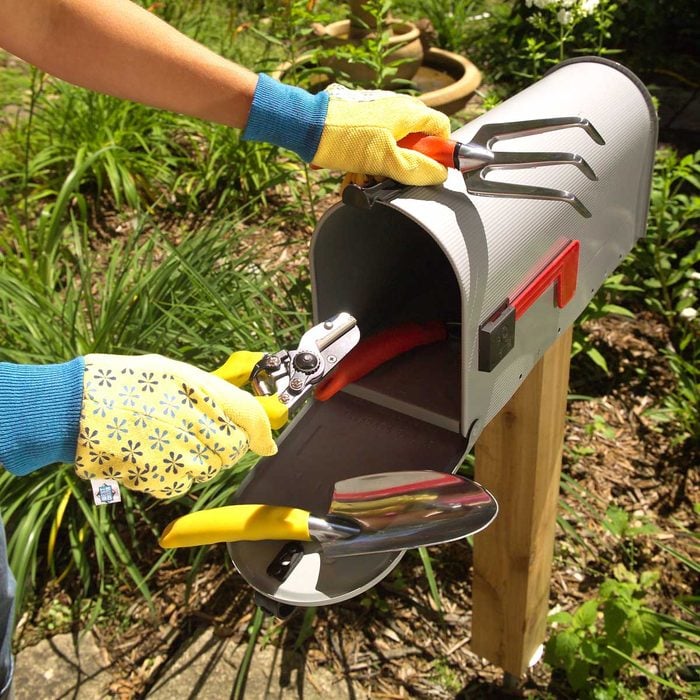
Mailbox
A mailbox hidden behind shrubs near your garden provides a convenient home for tools. Find a use for an old mailbox or find one like this at a home center. A small mailbox like this one costs less than $20 at hardware stores and home centers. King-size models cost about $35. —Reader Lynn Samples.
DIYers tend to accumulate all kinds of tools for all kinds of projects. The key to staying efficient, though, is to make sure you always have the right tools at hand.
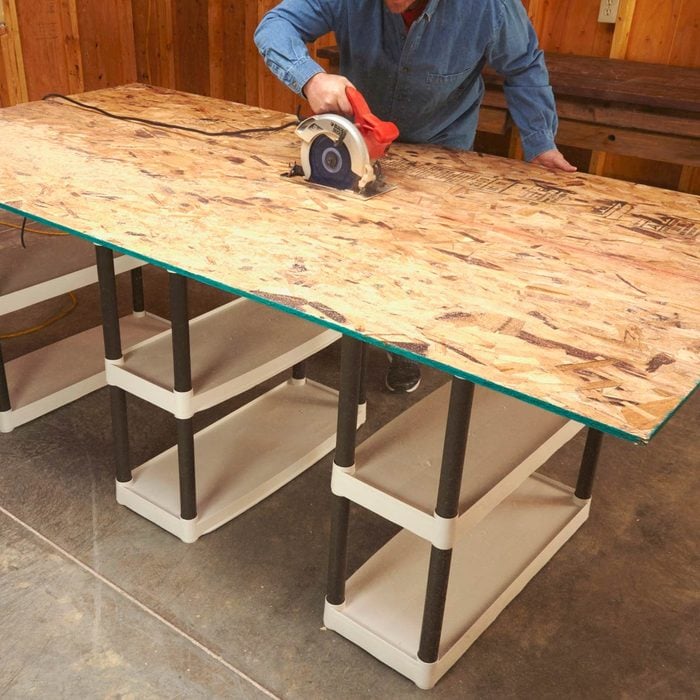
Plastic shelving units
When cutting full sheets with my circular saw, I use plastic shelving units as sawhorses. The height is just right and by using three of them, I can make cuts in any direction and the plywood is fully supported. And because the shelving units are made of plastic, I can cut right into them without worrying that they’ll damage my saw blade. Use some old shelves or find some new ones. Plastic shelves are available for $20 at home centers. —Reader John Tinger.
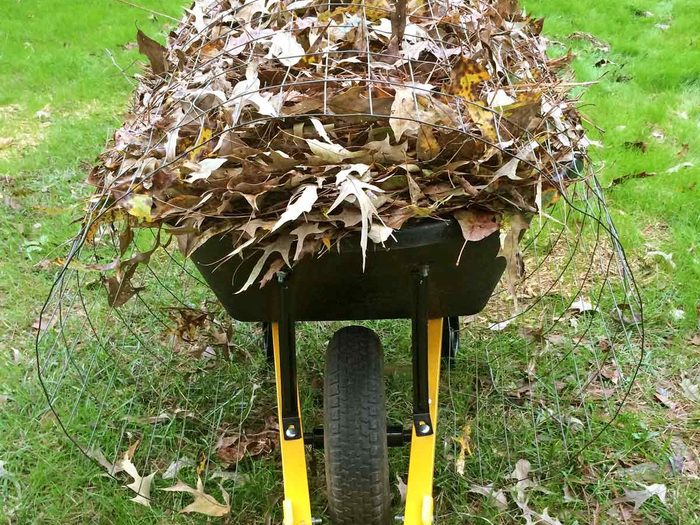
Wire mesh fence
Moving leaves in a wheelbarrow is no fun. A couple of good bounces and your leaves are all over the ground again. To combat this, I took a 4-ft. piece of wire mesh fence and bent it around the top and sides of my wheelbarrow. Now I can load the wheelbarrow full of leaves and have them stay put as I wheel them to the compost pile. —Reader Casey Hankins.
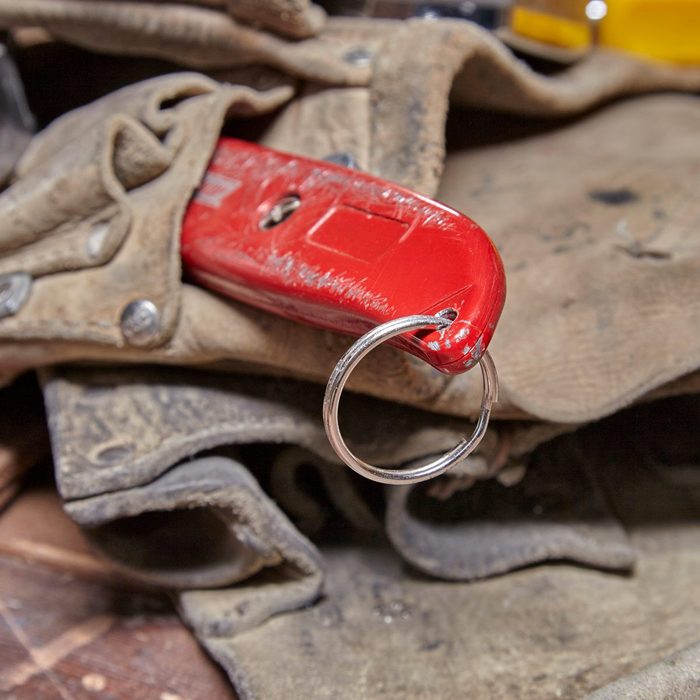
Key ring
Occasionally, my utility knife would get stuck inside one of the narrow pockets of my leather tool belt. To prevent this, I installed a key ring through the hole in the end of my utility knife. The ring also makes it easy to hang my utility knife on a nail in the workshop. —Reader Ted Kozlak.
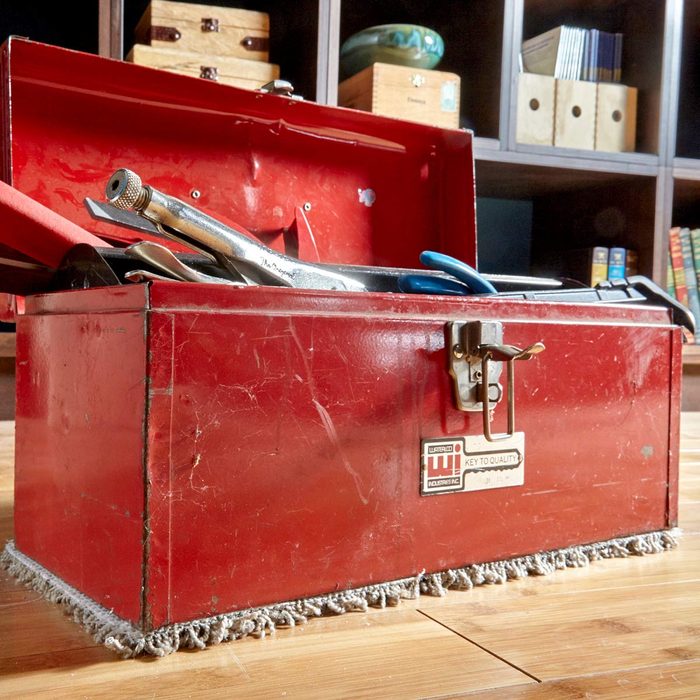
Carpet
I cut and glued a piece of carpet to the bottom of my toolbox to protect surfaces like floors and countertops from scratches. The carpet also makes it easy to slide my toolbox around rather than picking it up just to move it a little way. —Reader Kim Litkenhaus Marino.
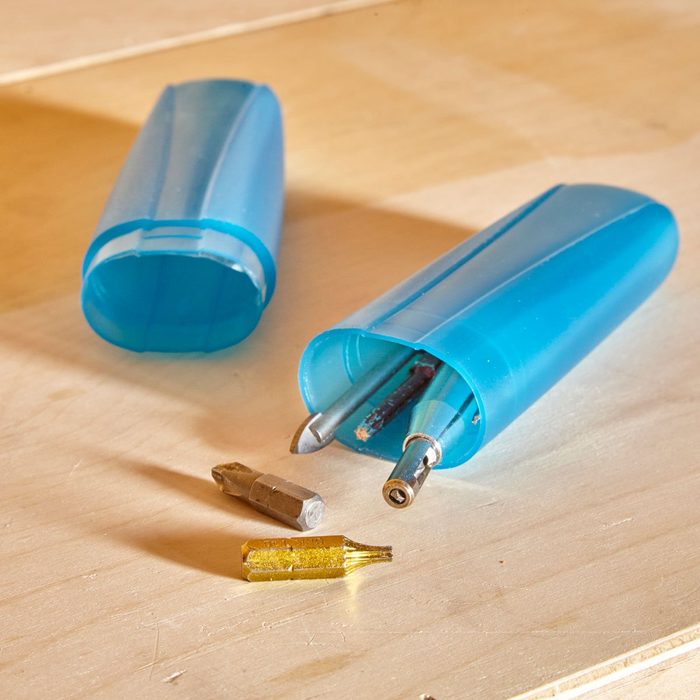
Toothbrush holder
Toothbrush holders make great, inexpensive holders for drill and driver bits. You can find them at discount stores and drugstores in the sample/travel section. Label the holders with a permanent marker and keep them in your drill tote or tool pouch. —Reader Vincent Lucrezi.
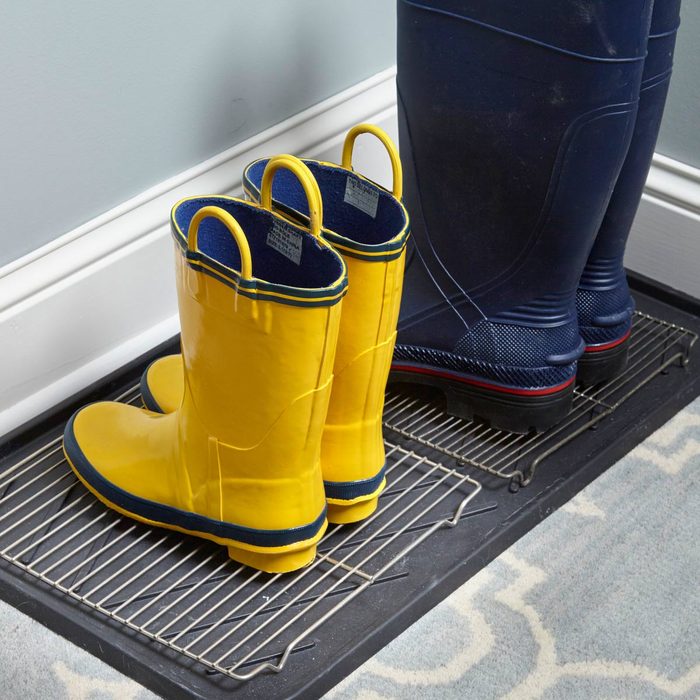
Cooking cooling racks
We keep our wet boots in a boot tray by the door. The boots used to sit in water all day and never really got dry. Then we decided to elevate them from the tray using some old cookie cooling racks. Now they’re dry when we put them on, and the water evaporates from the tray more quickly. —Reader Robert Henikman.
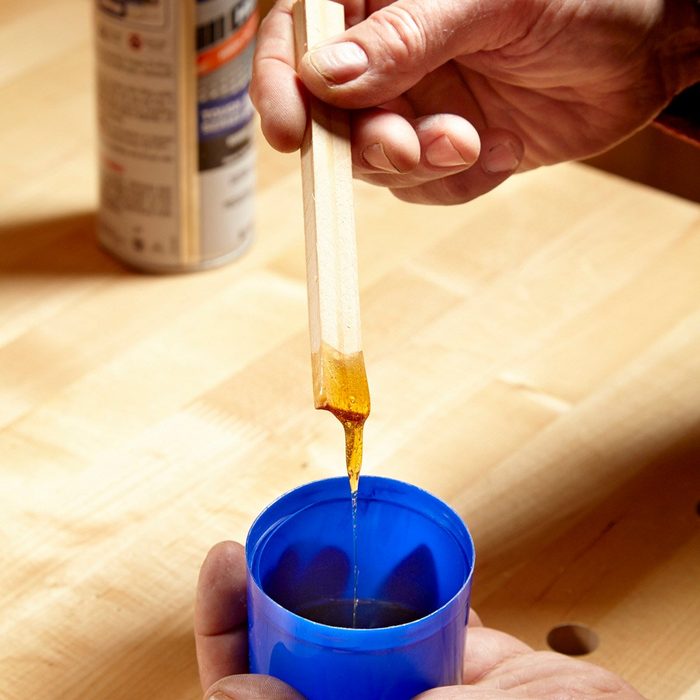
Save those caps!
Instead of throwing away old aerosol can caps, I save them to use as mixing containers for epoxy. Once the epoxy hardens, I can usually reuse the caps a couple of times because the epoxy peels away from the slick surface. —Reader Noel Hansen.
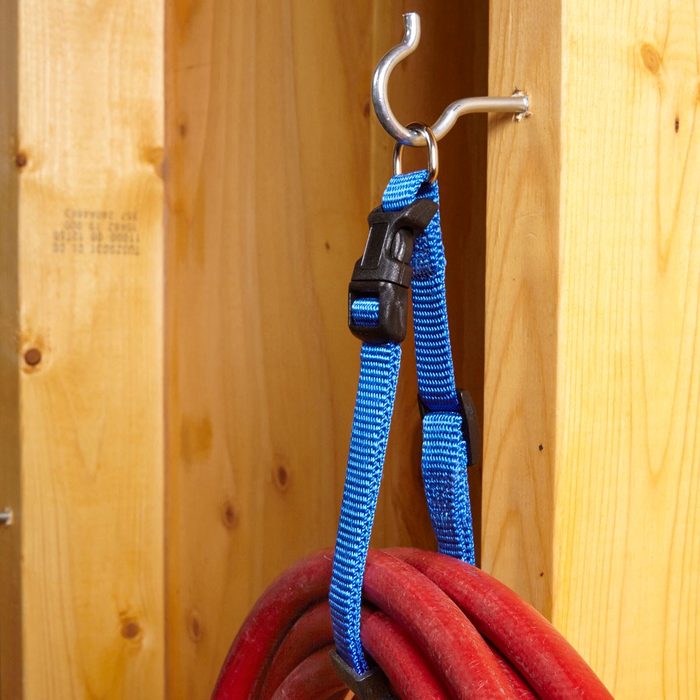
Pet collar
A few weeks ago while I was at the pet outlet store getting food and treats, I noticed the display of collars for dogs and cats. They looked like the perfect strap to keep my electrical cords organized in the shop. I bought several, and now I use them for air hoses too. The leash ring is perfect for hanging the cords on the hooks, and the quick-release fastener makes for fast strapping and unstrapping. —Reader Chris Neely. By the way, this is what it means if you see a dog with a red collar.
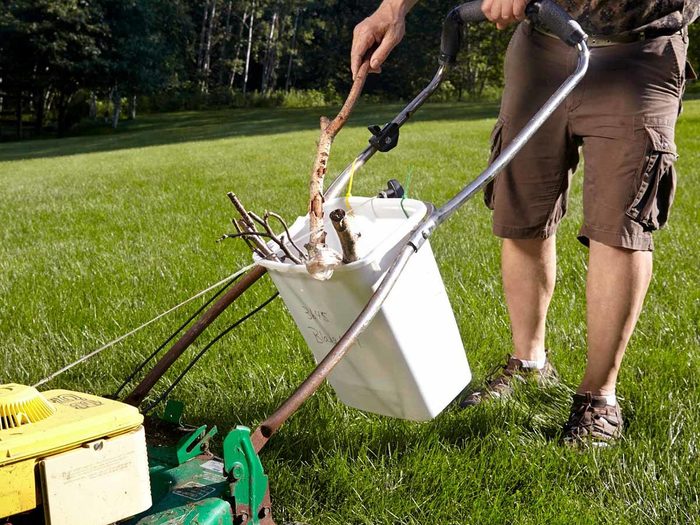
Old trash cans
Before I mow, I usually go around and pick up fallen twigs and other debris. Inevitably, I miss some and have to stop and pick it up. To solve the problem, I attached a wastebasket to my mower. Now when wrappers, cans, and sticks suddenly appear, I can stuff them into my basket and keep moving. —Reader Jared Reiners.
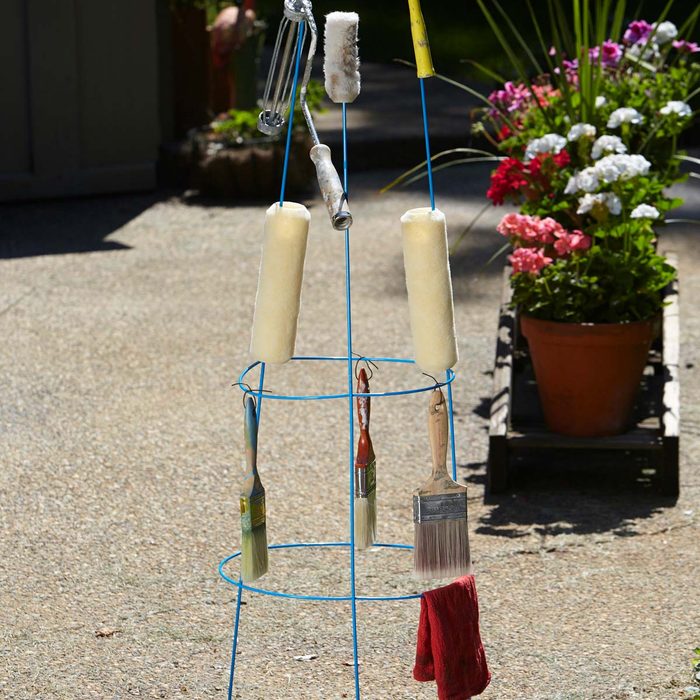
Tomato cage
An inverted tomato cage makes a great drying rack for rollers, brushes, pads, rags and whatever is wet after painting cleanup. The stuff dries quickly outdoors, and there’s room for everything! —Reader Tom Anderson.
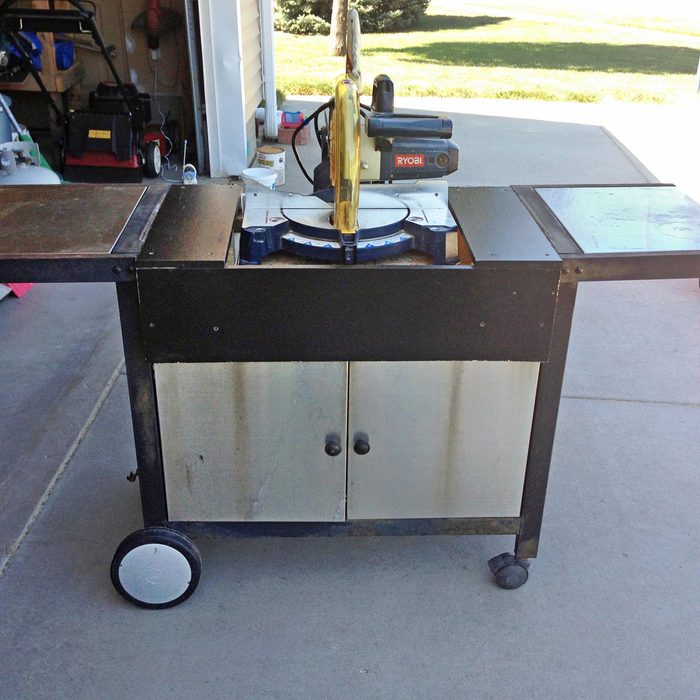
Cleaned out grill
This year we finally got a new gas grill. But I hated the idea of just throwing away our old one. One day, while I was using my miter saw on the ground, it occurred to me that my old grill could provide the perfect base for the saw. I removed the grill housing from the frame and built center framework that allowed the saw to sit flush with the wings of the grill. I can remove my saw and store it underneath, giving me a mobile workbench as well. —Reader Troy Heller.

CD case
Now that CDs are being replaced with smartphones and other devices, I use my old CD case to organize and store my seed packets. It works great to store them by seed type or even alphabetically. It’s a convenient reference to have for the following year. I write notes on the packets to remember which seed variety worked and which didn’t. —Reader Lisa Vice.
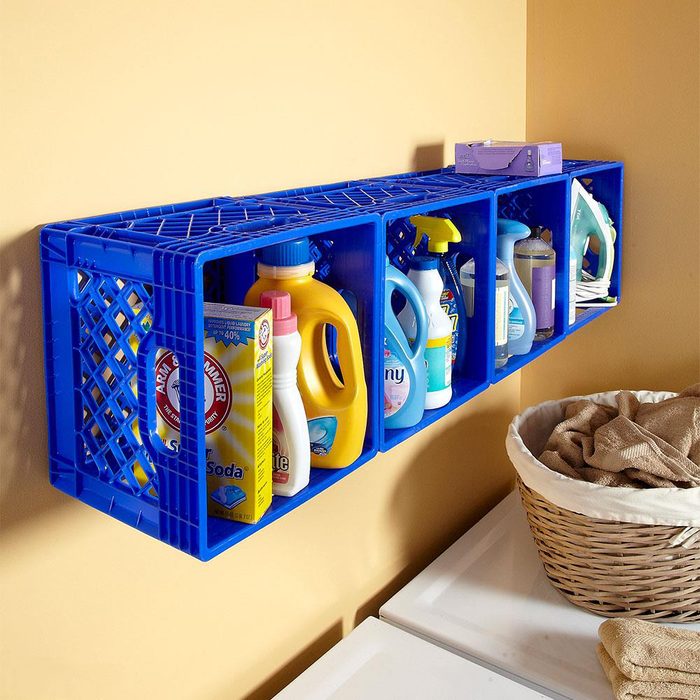
Milk crates
If you don’t have cabinets or shelves in your tiny laundry room, buy inexpensive plastic crates at a discount store and create your own wall of cubbies. Screw them to the wall studs using a fender washer in the upper corner of each crate for extra strength. The crates hold a lot of supplies, and they keep tippy things like your iron from falling over.
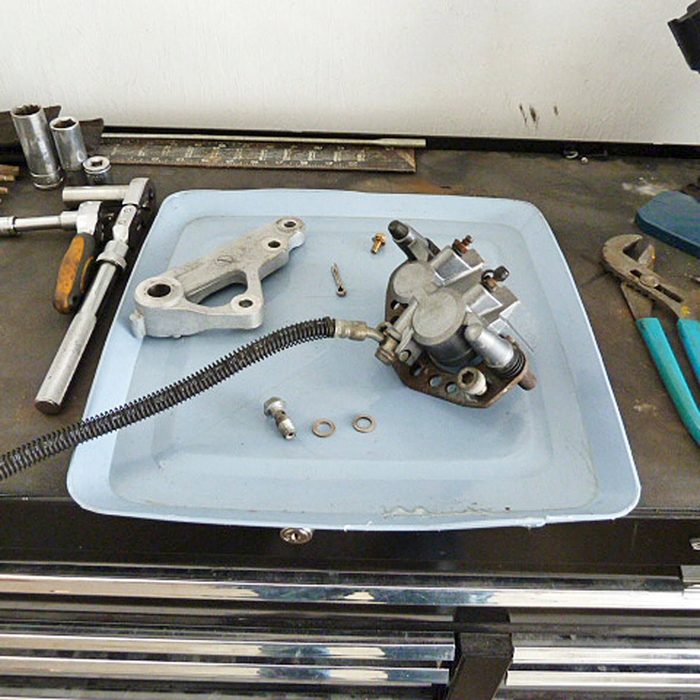
Broken laundry basket
Here’s a clever use for old, broken laundry baskets. Cut off the bottom with a razor knife to make an easy-to-clean drip pan for catching oil drips under your car or keeping greasy parts from wrecking your workbench. It’s a simple way to reuse something you’d normally just throw away. —Reader Greg Flesher.
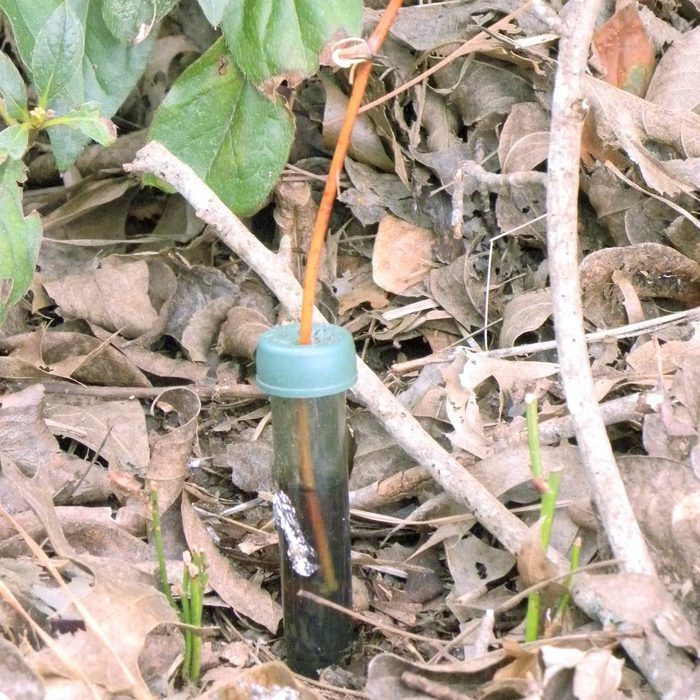
Floral water tubes
Here’s a clever way to get rid of twining briars and nuisance vines without damaging your shrubs. Buy a few floral water tubes (available at floral supply companies and nurseries) or just reuse the tubes that come with individual roses. Fill the floral tube with a little herbicide (like Roundup) and replace the rubber cap to keep out pets and rain. Stick the tube in the ground and then stick the tip of the vine into the tube. The vine will “drink up” the weed killer down to its roots and die within a few days. —Reader Judi Collins.
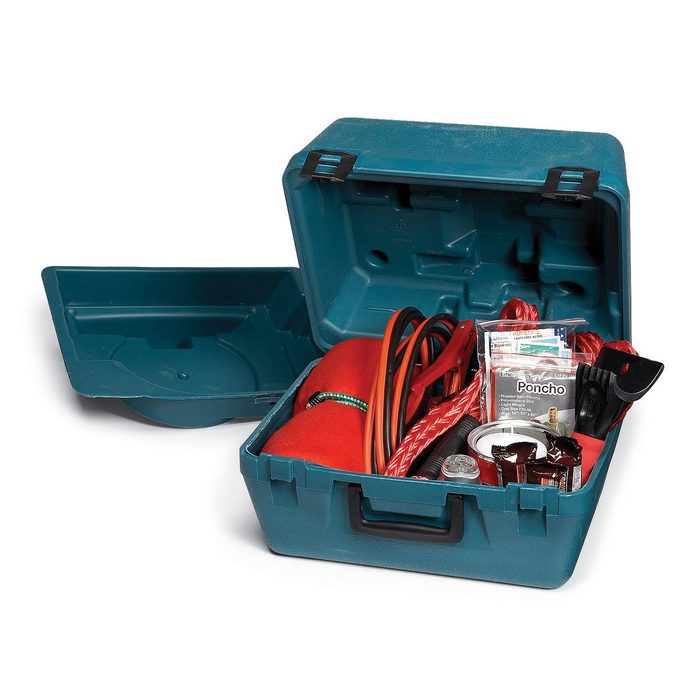
Drill box reuse
When that power tool finally gives up the ghost, give its carrying case a second life by carefully cutting out the liner with a utility knife. The case can be recycled into a roadside car kit or travel toolbox or holder for just about anything you can cram in there! —Readers Michael and Gina Fazzini.
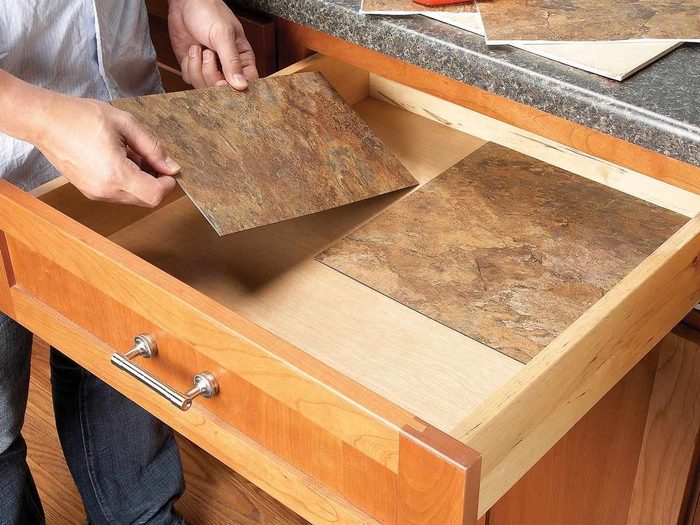
Floor tiles for drawer liners
Using shelf liner to line drawers or shelves is expensive and a hassle. It’s easier and cheaper to use self-stick vinyl tiles. Cut the tiles to fit with a utility knife, then peel off the backing and stick them in place. I’ve had tiles lining my kitchen drawers for ten years, and they’re still going strong. —Reader Cecelia Blanski.
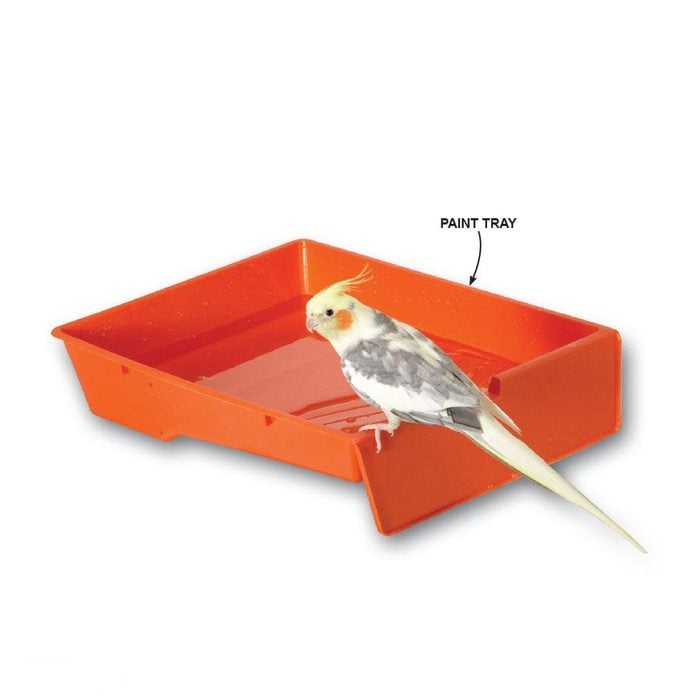
Paint tray
Many pet birds love to take baths. Next bath time, try using a new plastic paint tray as a bathtub! The ribs on the bottom of the tray provide traction, and the tray’s slope allow your pets to wade in the shallow water until they’re ready to move into the deep end. Paint trays are cheap and easy to clean, and they also make great turtle pools (but don’t tell your birds).
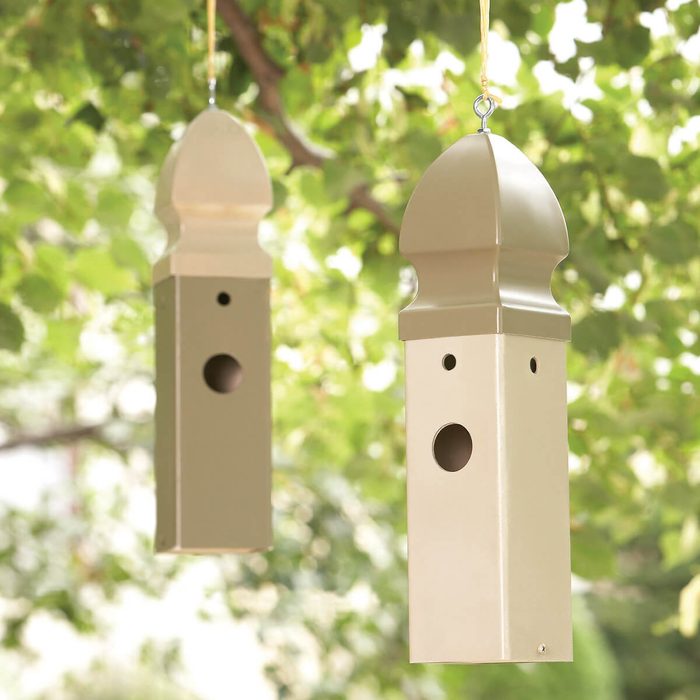
Fence post
Build an attractive birdhouse that will last for a lifetime, yet only takes a few minutes to build. All you need to create a welcoming home for wrens and other small birds is a short piece of plastic fence post.
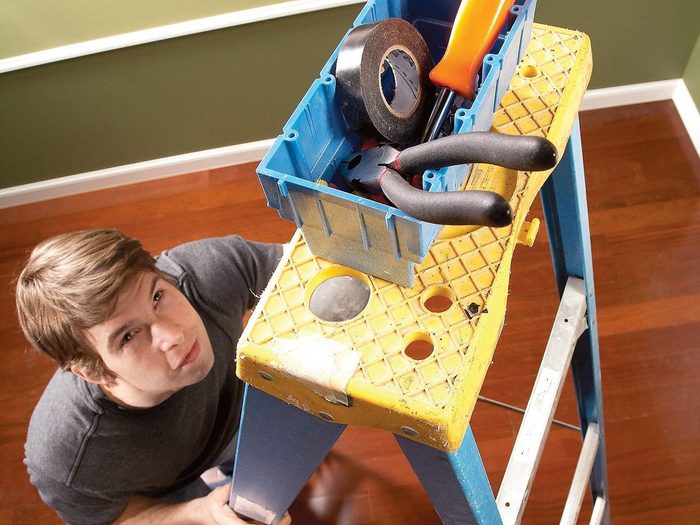
Electrical box
Use an electrical box to keep screws, washers, nuts, and bolts handy while you’re working up on a stepladder. Bolt the electrical box to the top of the platform. Everything you need is collected in one spot and nothing rolls away. —Reader Dwight Wilson.
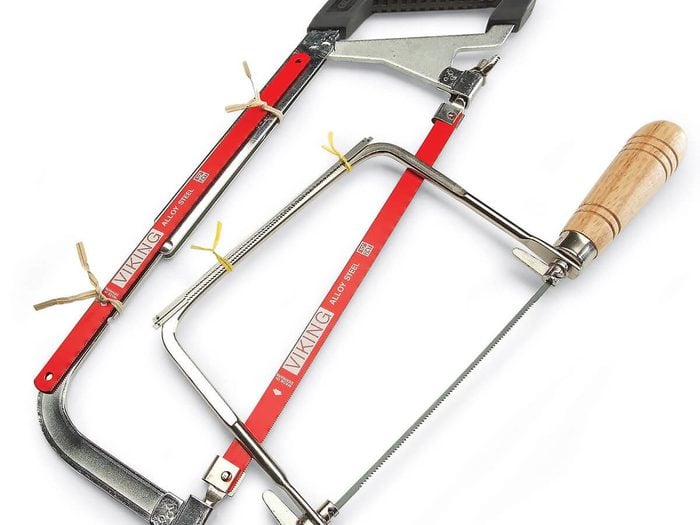
Twist ties
Here’s a sharp tip from reader George Sarna. Use tape or twist ties to attach spare blades to the frames of your hacksaw and coping saw. The next time a blade breaks or dulls, you won’t scratch your head trying to remember where you put the spares.
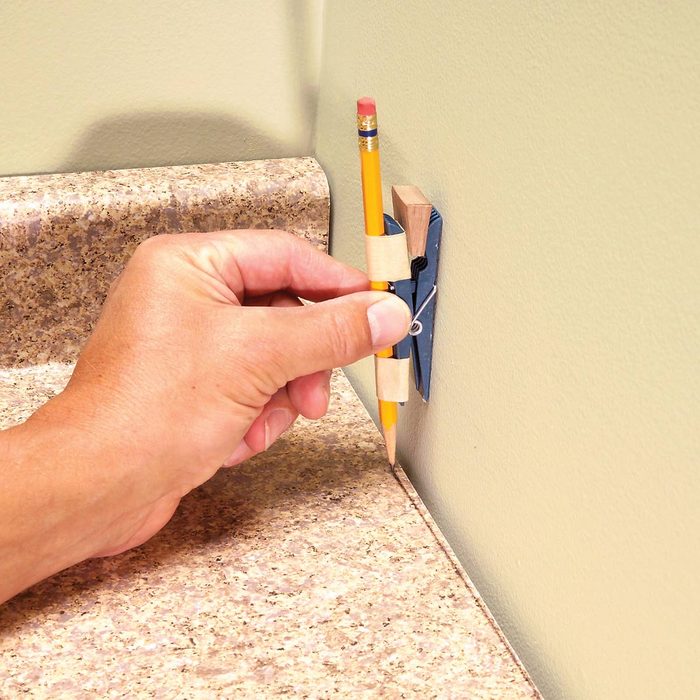
Clothespins
Here’s a great way to scribe lines when you’re fitting countertops, cabinets, and built-in furniture against irregular walls. Tape a pencil to a clothespin with the tip pointing away from the clothespin’s jaws. Wedge the jaws open with a chunk of wood until the pencil matches the widest gap between the workpiece and the wall. As you scribe, the flat side of the clothespin spaces the pencil point to exactly match the wall contour. Sand to the line for a perfect fit. Thanks to master furniture maker Bruce Kieffer for sending this great tip.
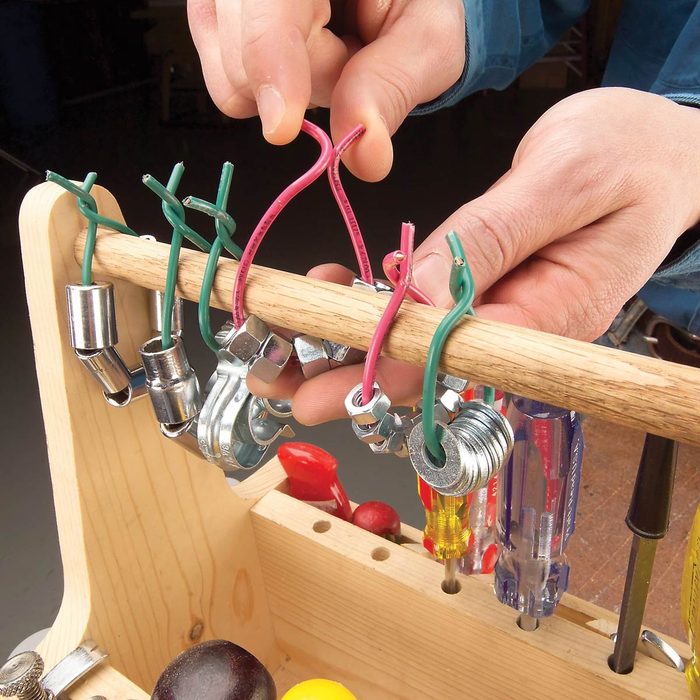
Electrical wire
To keep your hardware neat and accessible, thread nuts, washers, sockets, and other items on short pieces of 12- or 14- gauge electrical wire, then hang them on a toolbox handle or a pegboard hook. Twist the ends of the wire into hook shapes that interlock for easy closing and opening. Many thanks to reader Roger Swanson for tying up this neat tip.
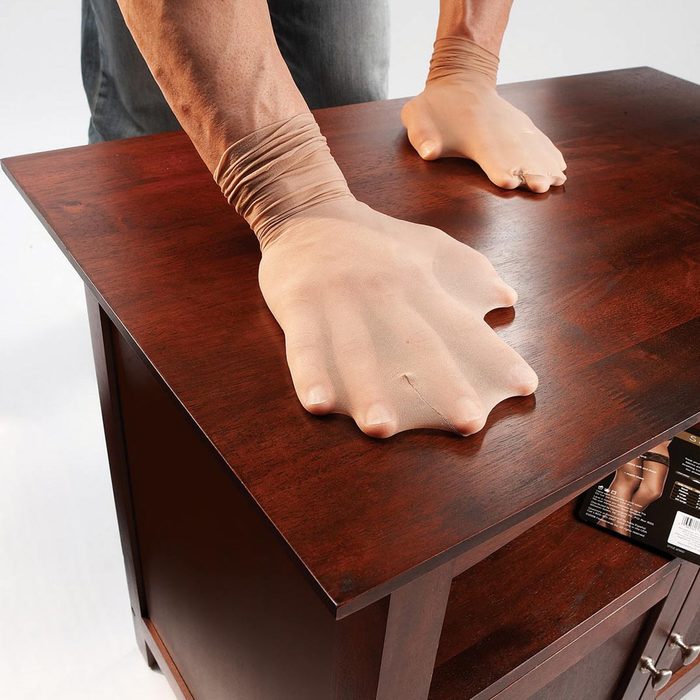
Nylons
After waxing wood or leather, use a pair of pantyhose for that final buff. It will give your project that extra gleam and make the surface feel smoother. —Reader Ellis Biderson.
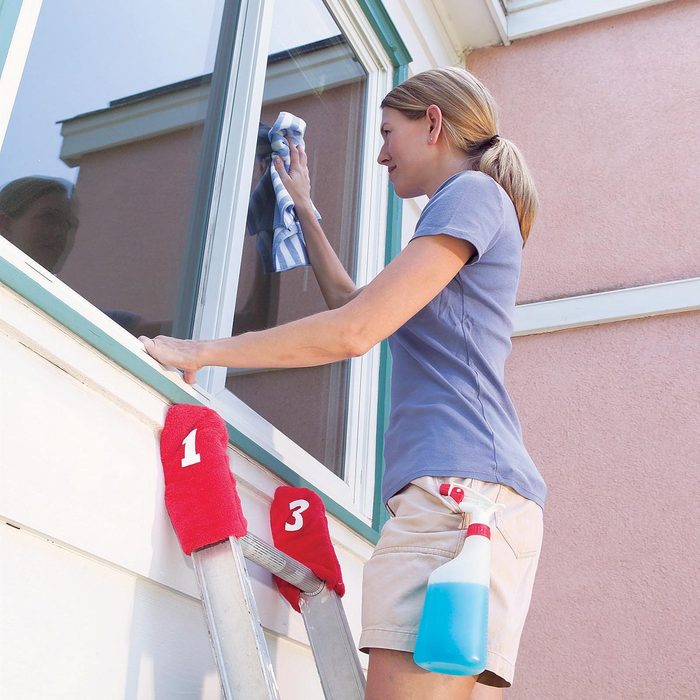
Golf club covers
A round of protection to prevent your ladder from marring your home’s exterior, slip golf club covers on the ends of the ladder. It may also motivate you to get your household chores done and get you out on the links. —Reader Bill Provost.
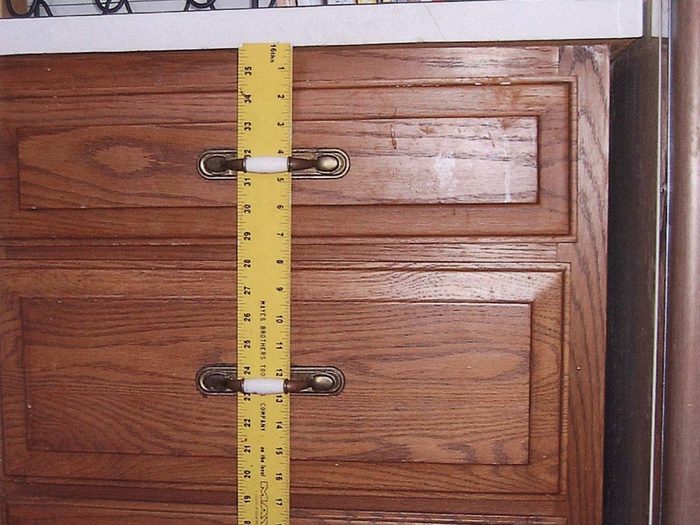
Yardstick
If toddlers visit your home only occasionally, you don’t have to mar your cabinetry with a safety latch to make it childproof. Keep a set of drawers from being opened by sliding a yardstick through the handles. Now the kids are safe and you didn’t have to buy a special safety latch or get out your drill. —Reader Fran Fullerton.
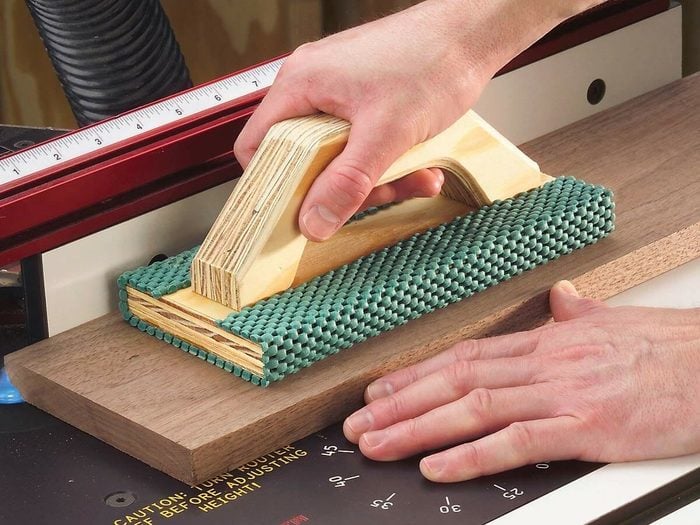
Shelf liner
Build your own push blocks and work with greater precision and safety when you’re routing, dadoing, and planing workpieces. Apply shelf liner (the rubbery type) to a piece of 3/4-in. plywood with contact cement, then add a handle to maintain downward and forward pressure on the workpiece. Use two push blocks to keep uniform pressure while you’re moving longer workpieces through the router table. Our thanks to Stewart Berner for this tip.
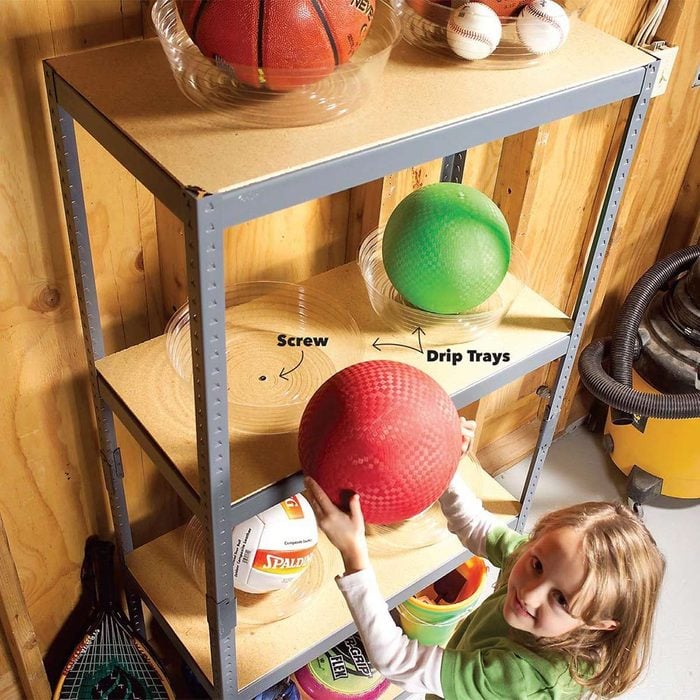
Flowerpot drip pans
Screw flowerpot saucers to shelves so balls can’t roll off. Cheap plastic trays come in sizes to suit all kinds of balls.
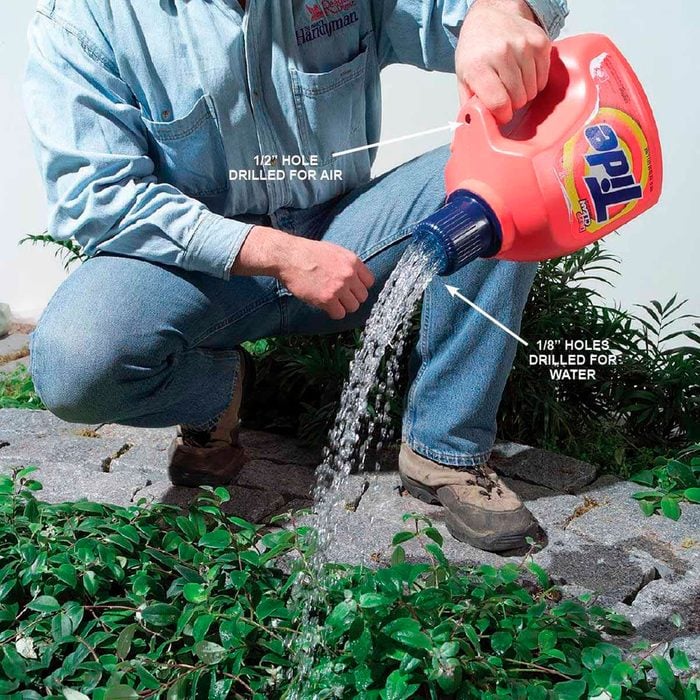
Laundry jug watering can
Instead of throwing away empty laundry detergent containers, rinse them out thoroughly and then recycle them for watering plants. Drill 1/8-in. holes in the top of the cap, and a 1/2-in. hole just above the handle to relieve pressure so the water flows freely.
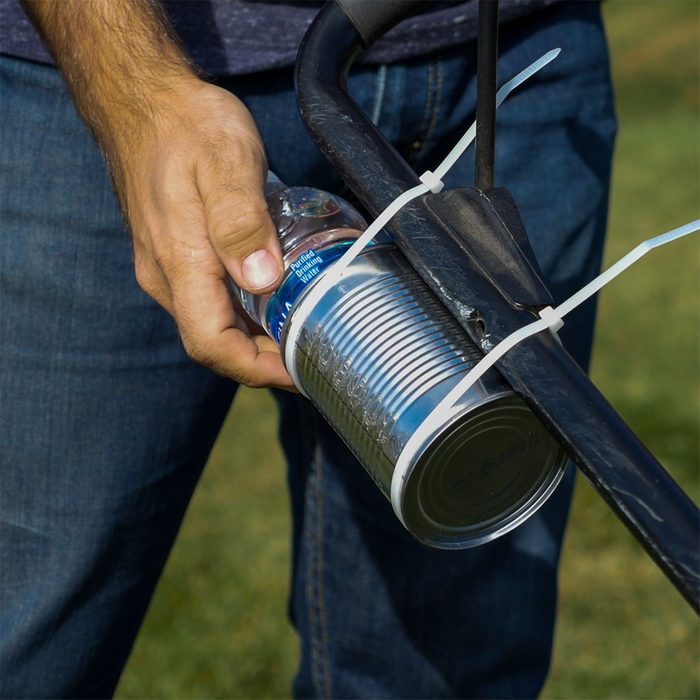
Tin can
Keep cold water within reach when mowing the lawn on hot days. Simply attach an empty (and clean) tin can to the handle of your walk-behind mower using zip ties. Be sure to select a can large enough to fit your water bottle!
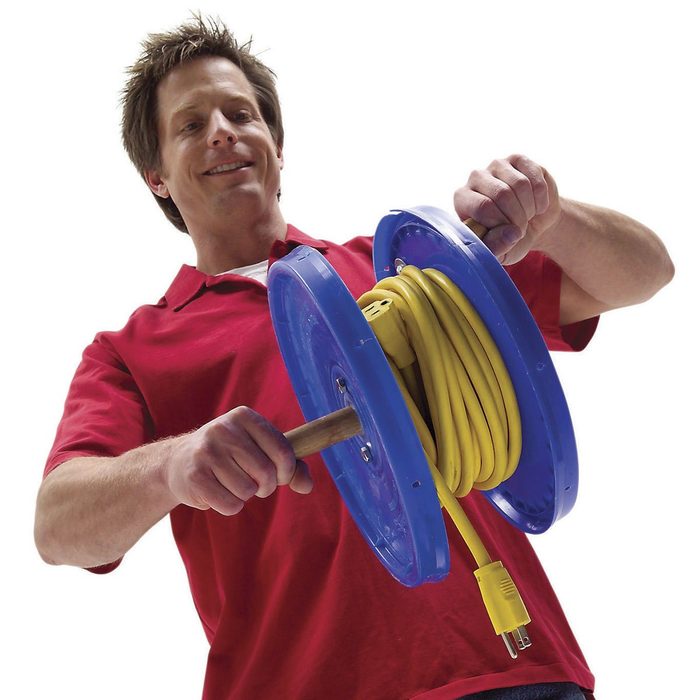
Bucket lids
Make this handy cord reel using extra bucket lids. Cut a 5-in. length of 4×4 and then cut a groove in the side the same width as your cord. Fasten the lids to the 4×4 with 1/4 x 2-in. lag screws. Make handles from an old 1-1/8 in. diameter broom handle and drill a 1/2-in. hole through the center. Fasten the crank to the lid with bolts, nuts, and washers, and apply Loctite sealant to the end nut. Fasten the handle to the 4×4 through the lid with a 6-1/2 in. lag screw. Just insert your cord and reel it in.
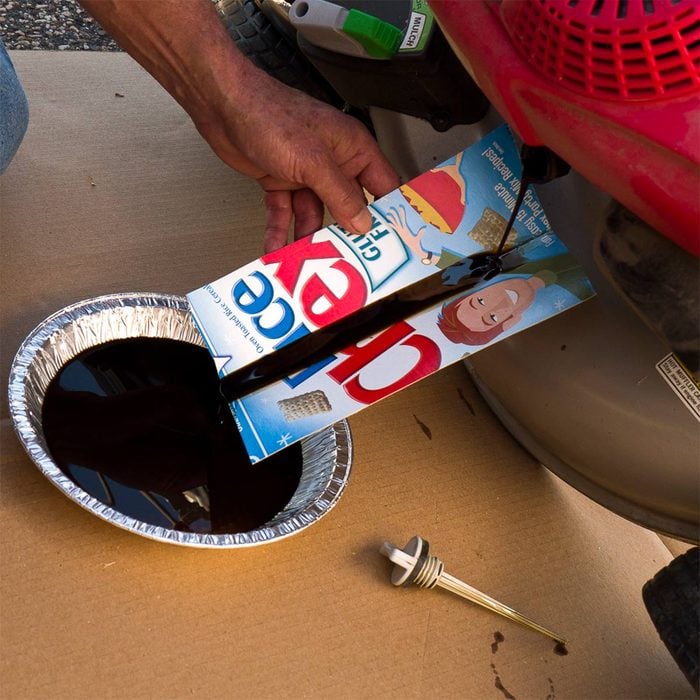
Cereal box
Make changing the oil in your lawnmower, snowblower, and outdoor machines less messy with this handy hint: Cut off a piece of an empty cereal box and fold it into a trough. Then tip the machine and use the trough to guide the oil into the waste pan. The glossy coating on the cereal box keeps the oil from soaking through.
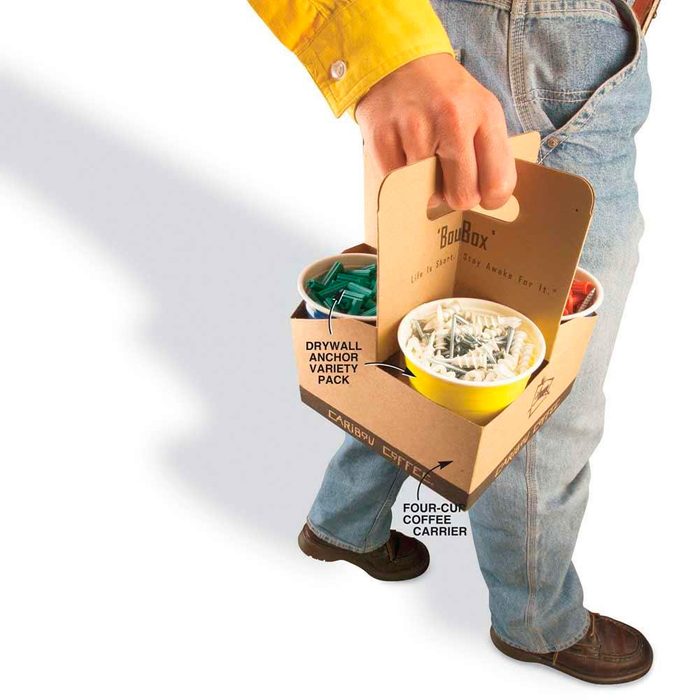
Coffee carry-all
You can reuse those takeout coffee four-pack cartons. They’re made of stiff cardboard and offer 3-1/2-in. wide square bins for jumbo plastic drinking cups. They’re handy storage spots for nails, screws, and other small stuff.
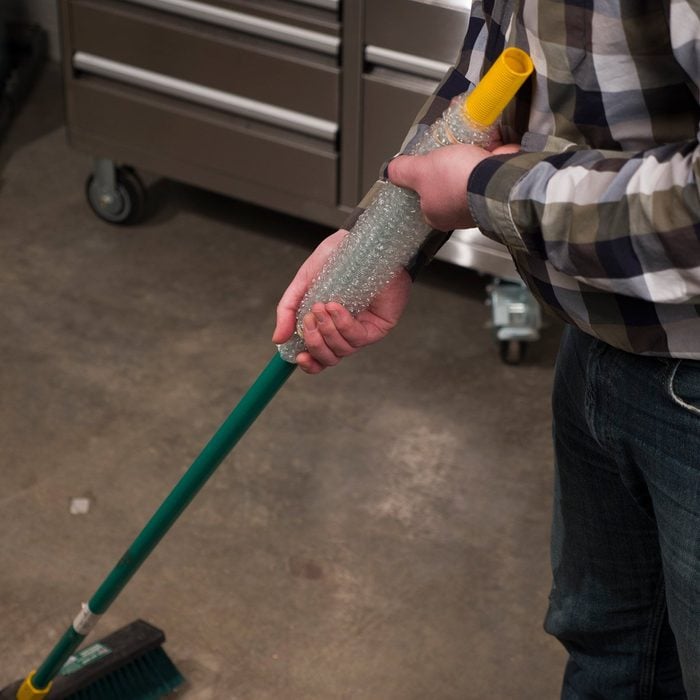
Bubble wrap®
Bubble Wrap® can help prevent blisters by placing some on the handle of a rake or a broom.
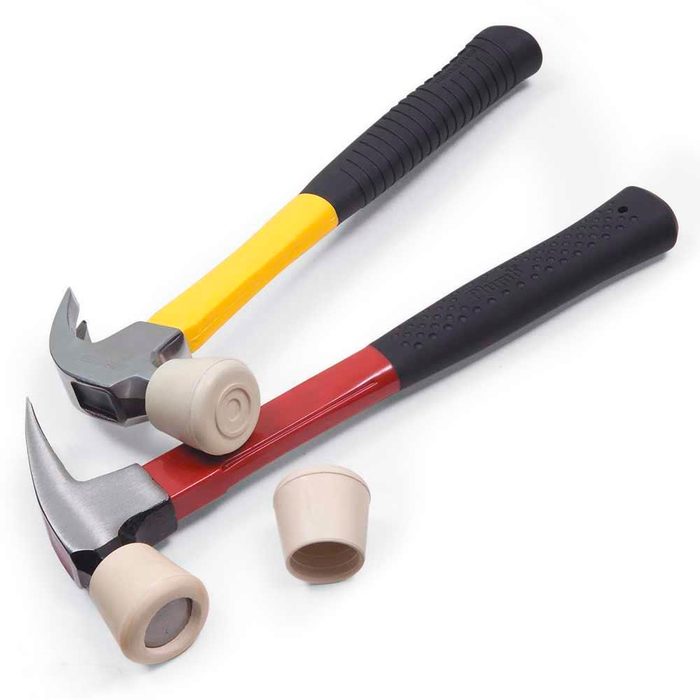
Rubber chair leg cap
A rubber chair leg cap instantly converts a hammer into a rubber mallet. And if you want to drive a nail without denting the surrounding wood, cut a hole in the rubber cap. Pound until the rubber strikes wood, then finish driving the nail with a nail set. A 1-1/8 in. rubber cap fits tightly over most hammers and costs about $1 at home centers and hardware stores.
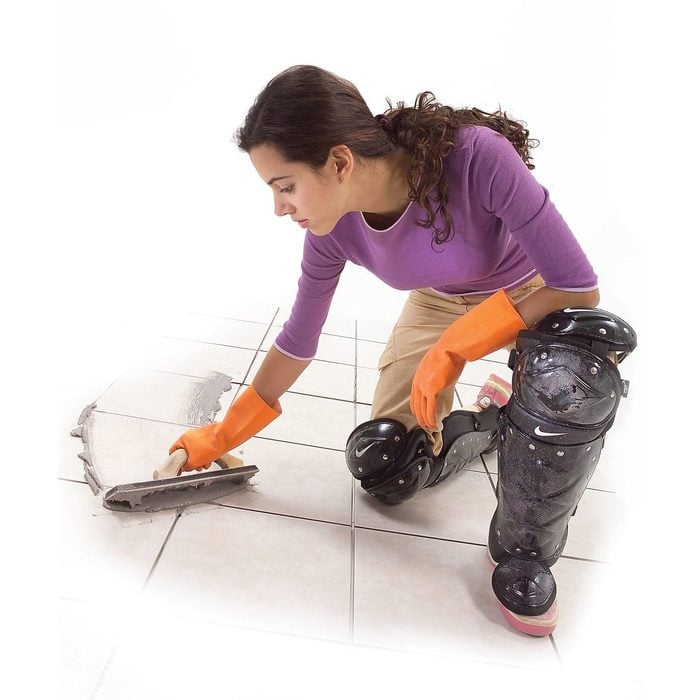
No-slide knee pads
Knee pads that slip down your shins every time you stand up are a huge nuisance. Avoid the slide by strapping on a pair of hockey or baseball catcher’s shin guards instead. You get comfortable knee pads that stay put, and shin protection, too. You can try a secondhand sports store or get a new pair for about $30 online. — Reader Bill Jones.
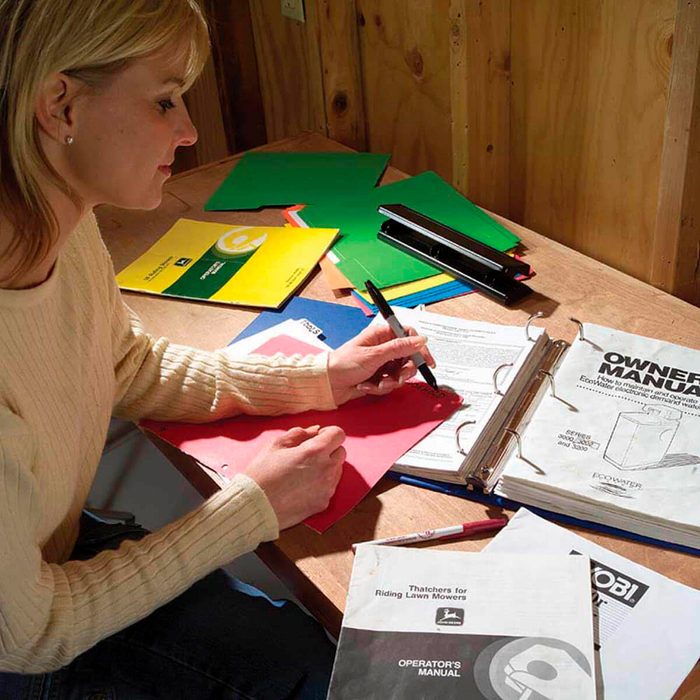
Appliance and tool manuals
Store your appliance and tool manuals in three-ring binders so you can find them when you need them. Insert labeled dividers to organize them for quick reference.
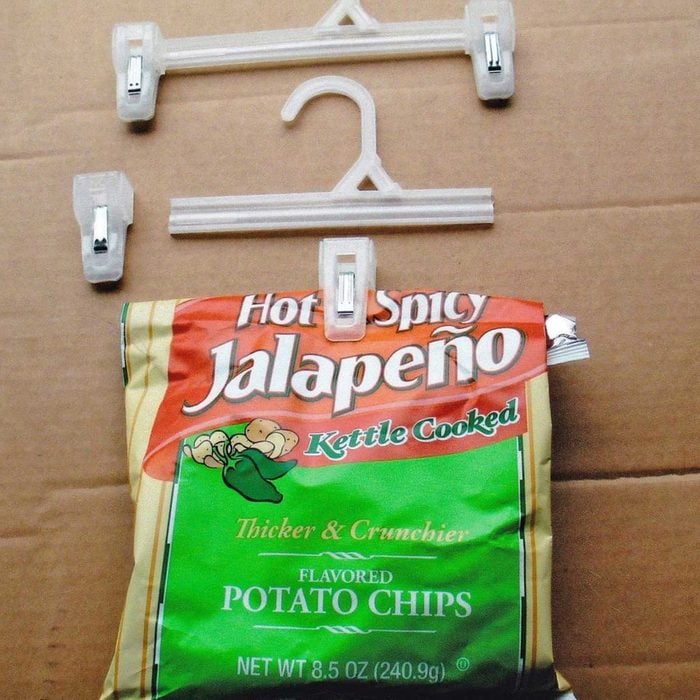
Chip clips
Who likes to spend money on items when you can get them free? We get clothes hangers with plastic clips along with the clothing we buy at the local department store. I just clip off the ends and use them to keep my bags of chips fresh. — Reader Chuck Bemben